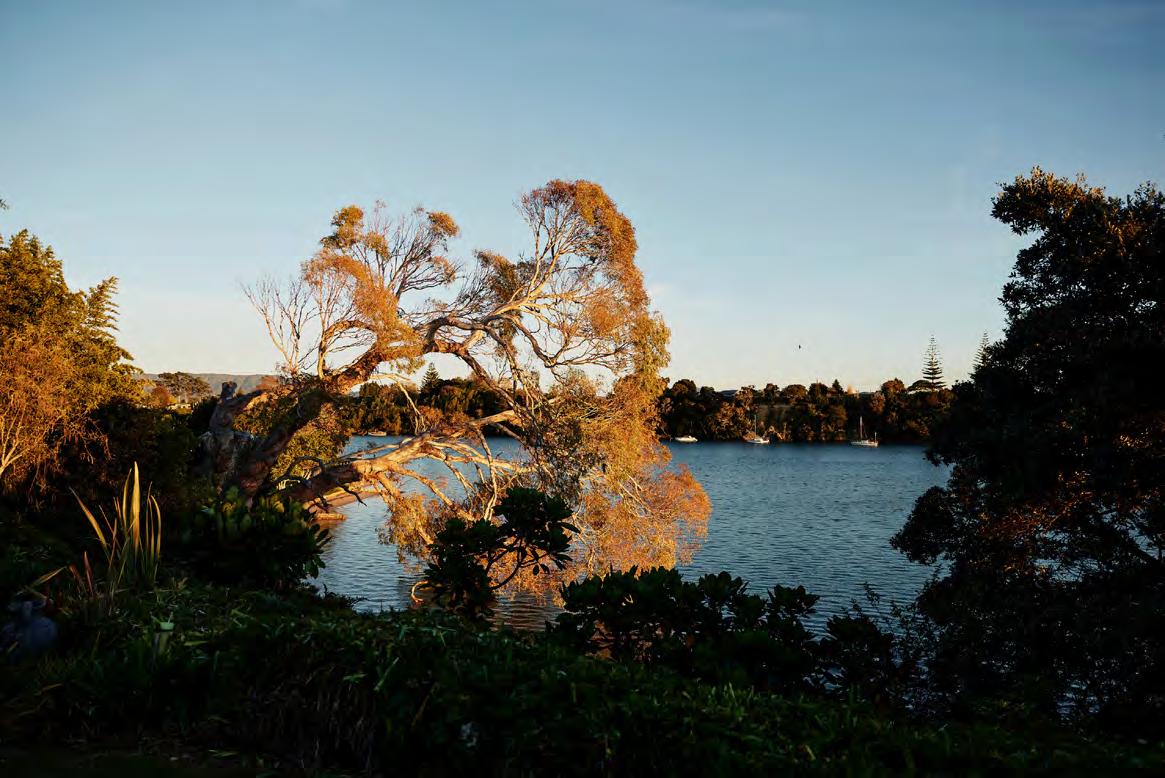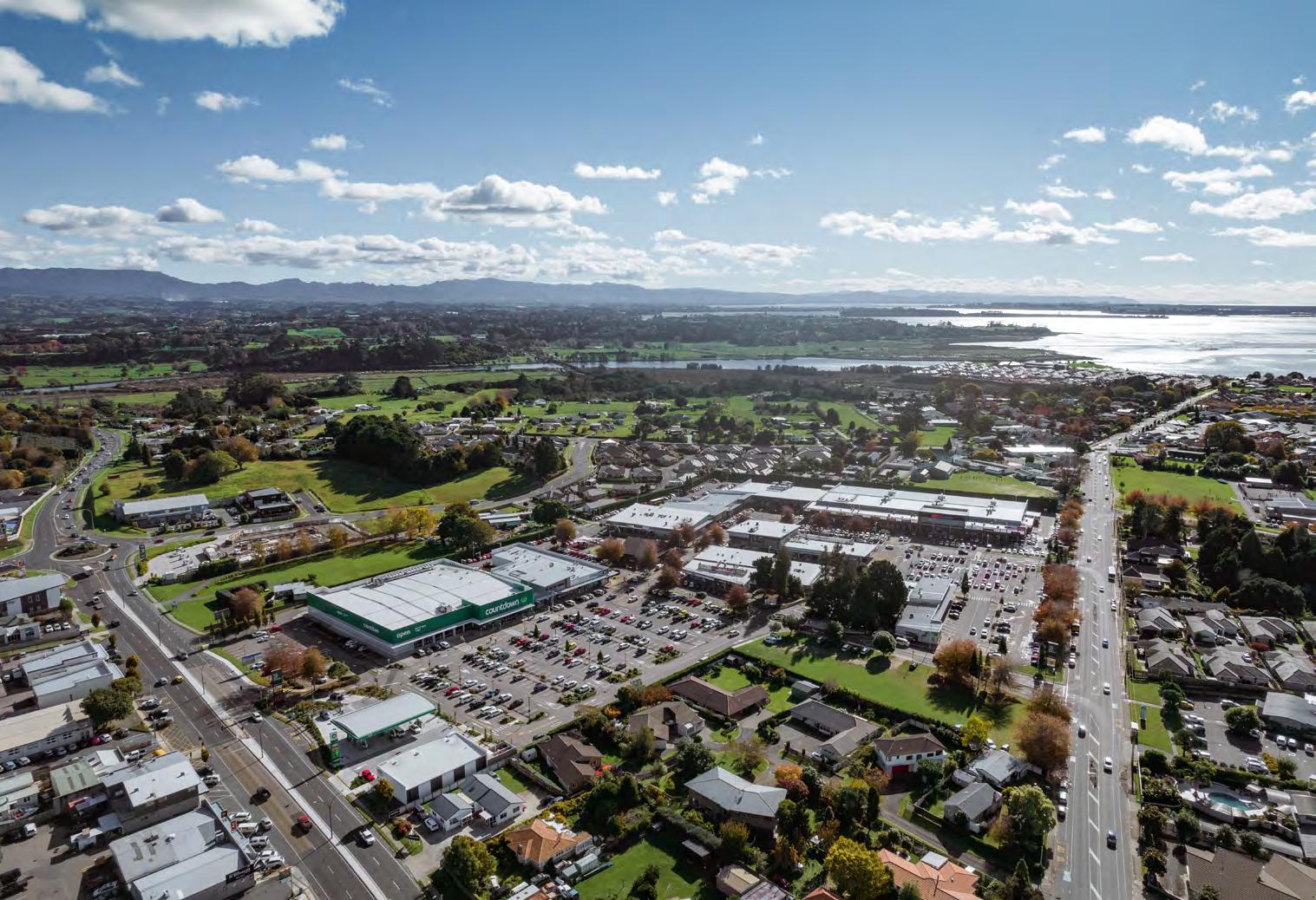

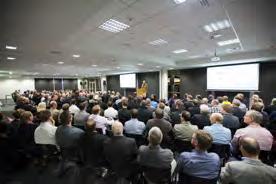

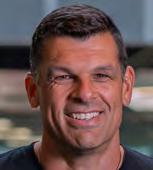

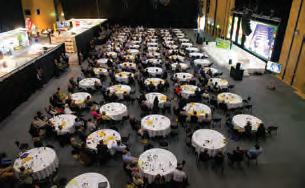
















Private equity investor
FBy DAVID PORTER
ollowing the successful capital raise for the new fund, Oriens will be increasing the size of its Tauranga-based investment team from four to six.
Oriens was formed in 2016 with the support of Quayside Holdings, and has successfully established itself as a leading private equity investor in mid-sized businesses. This is a section of the economy not served by most other New Zealand private equity funds.
The Fund has become a key player
Capital deployed in our
difference and it is very satisfying to be helping these
–James Beale




in New Zealand’s entrepreneurial infrastructure.
Oriens raised $50.6 million for its first fund and has successfully deployed capital into six investments including miniature apple business Rockit Global, ag-tech business Bluelab, and market-leading manufacturing business Rhino
Manufacturing
Earlier this year, NZX listed company Just Life Group completed the purchase of About Health Supplements from Oriens Fund 1.
Oriens Fund 2 will invest equity capital into private New Zealand businesses of between $10 million and $50 million, drawing on the networks and investment pipeline the team has built over the last five years, said Peter Tinholt, a partner of Oriens.
“It will aim to build a portfolio of six to nine investments,” said Tinholt.
The fund is likely to remain open to eligible and wholesale investors until early July, 2021.
Excellent investment opportunities
“The section of the economy on which we focus offers excellent opportunities to invest in and support high quality ambitious businesses with strong
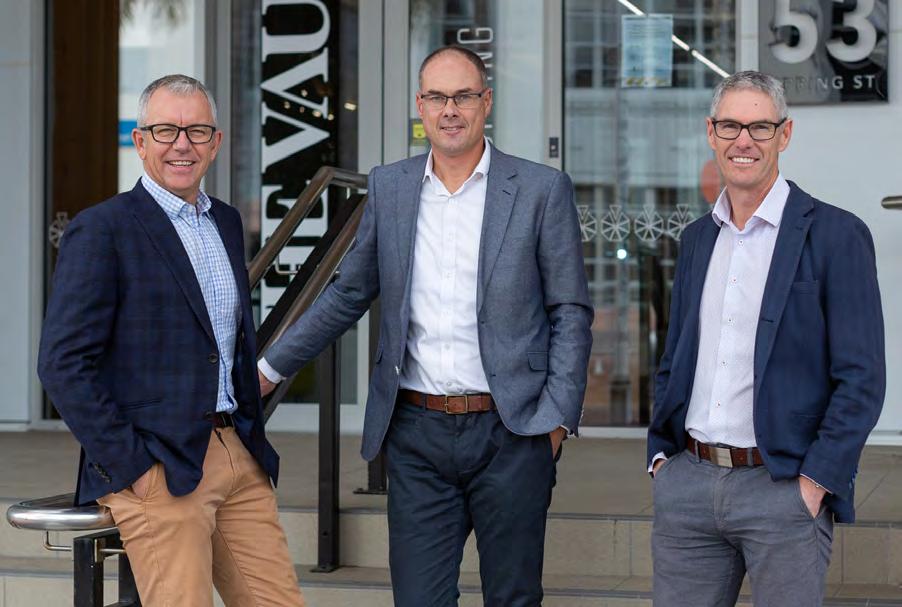
Oriens offers capital, networks and expertise and partners with business founders and owners in both expansion capital and succession capital transactions to help these companies achieve their potential.
Oriens partner James Beale said he was proud of Oriens record of success and the contribution it is making to
the New Zealand economy.
“Through Oriens Fund 1 in partnership with other shareholders, we have assisted in the creation of more than 120 jobs across our portfolio of companies and assisted in a more than tripling of export revenue and earnings,” said Beale.
“Capital deployed in our space can make a real difference and it is very satisfying to be helping these companies achieve their growth ambitions.”










www.bopbusinessnews.co.nz
PUBLISHER
Alan Neben
Ph: 021 733 536
Email: alan@bopbusinessnews.co.nz
EDITOR
David Porter
Mob: 021 884 858
Email: david@bopbusinessnews.co.nz
PRODUCTION
Copy/Proofs/Graphic Design
Times Media – Clare McGillivray
Ph: (09) 271 8067
Email: clare@times.co.nz
ADVERTISING INQUIRIES
BUSINESS DIRECTOR
Pete Wales
Mob: 022 495 9248
Email: pete@bopbusinessnews.co.nz
ELECTRONIC FORWARDING
EDITORIAL:
News releases/Photos/Letters: david@bopbusinessnews.co.nz
GENERAL INQUIRIES: info@bopbusinessnews.co.nz
Bay of Plenty Business News has a circulation of 8000, distributed throughout Bay of Plenty between Waihi and Opotiki including Rotorua and Taupo, and to a subscription base. www.bopbusinessnews.co.nz
Bay of Plenty Business Publications 309/424 Maunganui Road, Mount Maunganui, 3116
Bay of Plenty Business Publications specialises in business publishing, advertising, design and print media services.
Tauranga is going through some strange times as the city adjusts to life under the new leadership of its four commissioners, led by Anne Tolley (see page 11 for more details of the new lineup).
While many resented the new lineup, there seems little affection for the ousted councillors, who are generally seen to have failed to live up to expectations.
The commissioners have now announced that they have received over 1000 submissions online, by email and in hard copy.
These were initially compiled in preparation for the
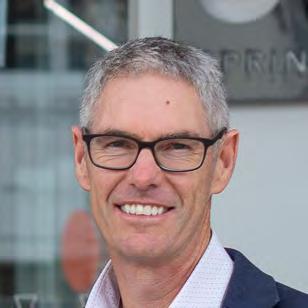
hearings in April and the commissioners made decisions in order to adopt the new Long Term Plan.
The key comment by commissioners has been that in their view previous councillors had failed to invest sufficiently in previous long term plans, being basically more keen on getting re-elected and thus not alienating locals with large rates rises.
But despite grumbling from
some sectors of the community, there seems – perhaps surprisingly – widespread acceptance that we need to spend more money in Tauranga to restore key services.
Tauranga’s population is growing and we need to grow in order to accommodate the rising demand.
We are pleased to bring you our July issue, and to note the surge of business activity we are already seeing in Tauranga.
Capital deployed in our space can make a real difference and it is very satisfying to be helping these companies achieve their growth ambitions.” – James Beale Oriens Capital raises second fund p3
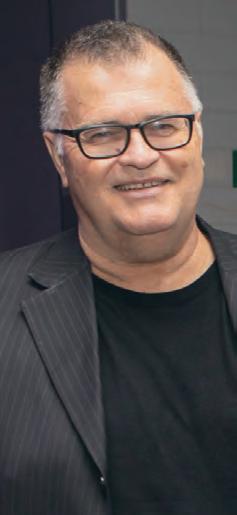
FNew Zealanders love land, bricks and mortar, but growing headwinds in residential property investment are now making commercial property a more sought-after investment option.” – Scott McKenzie PMG to acquire Bethlehem Town Centre p13
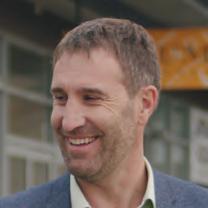
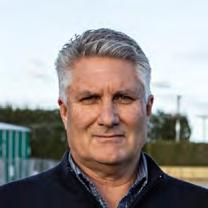
In the next few years demand for Gold kiwifruit worldwide will continue to rise and so DMS wants to grow its share of that anticipated industry growth.” – Derek Masters $40 kiwifruit packhouse and coolstore p14
irst Mortgage Managers (FMM), manager of First Mortgage Trust (FMT), has announced Paul Bendall as the new chief executive officer. Paul joined First Mortgage Trust in August 2020 as general manager and has more than 20 years’ experience in the property, banking and finance industries. Michael Smith, chair of FMT says, “We are delighted to announce we have appointed Paul Bendall as our new CEO. Paul has spent the past 12 months working closely with the current CEO, Tony Kinzett, and the Board, and has a thorough understanding of the business and shares our vision and goals for the future of FMT.”
Paul Bendall says, “It’s a great honour and responsibility to take over the reins of the company, First Mortgage Trust is going from strength to strength. We have over $1 billion funds under management and we have recently surpassed $1 billion in loans for the first time. I’m truly excited to lead
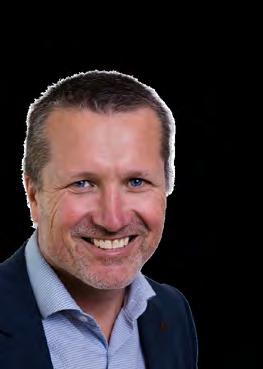
Paul will take over from long time CEO Tony Kinzett on the 3 September. “The Board members and I have enormous confidence in Paul, and I will be continuing to work closely with him over the next couple of months as I transition out of the company,” says Tony has been CEO for 15 years and is retiring.
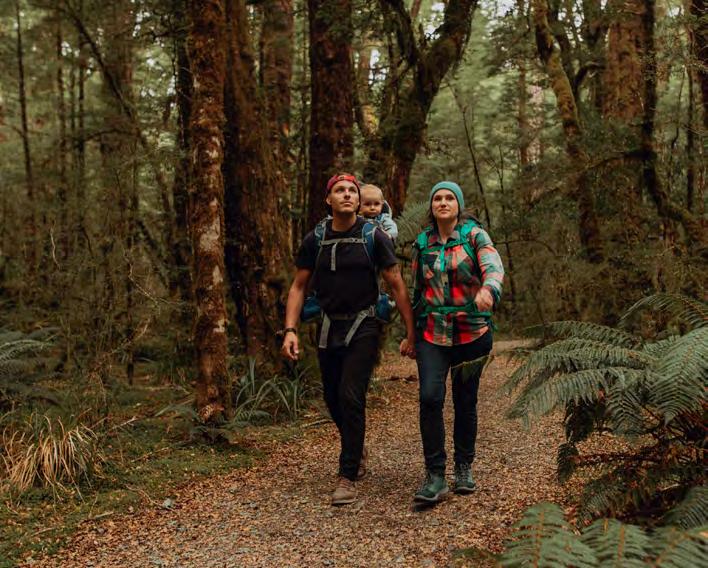
Power generator and retailer Mercury NZ plans to buy the retail business of Tauranga stalwart Trustpower once it gets various permissions sorted, including Commerce Commission approval. The businesses have entered into a binding agreement conditional on the restructure of Tauranga Energy Consumer Trust (TECT) and Trustpower shareholder approval.
TBy DAVID PORTER
rustpower’s retail business sells electricity, gas, fixed and wireless broadband and mobile phone services to about 231,000 customers nationwide. Combined, the businesses would have about 780,000 connections across both energy and telco services.
Mercury chief executive Vince Hawksworth – formerly a longtime ceo of Trustpower – said the acquisition would accelerate Mercury’s retail strategy, which is centred on delivering the right product mix and value for customers.
“Mercury and Trustpower are two highly complementary organisations, and this agreement would see the best of both being brought together for our customers,” he said.
“We know customers value the convenience and ease of bundled services in their home and Trustpower has deep expertise in bundling products in a way that people clearly appreciate. We see this adding material value to our customers and Mercury.
“Bringing together the retail businesses of Mercury and Trustpower will also give us the scale to make meaningful investment in the underlying IT systems, driving greater innovation for our customers.”
Skilled and motivated staff
Hawksworth said the strength of Trustpower’s retail offering was underpinned by a skilled and motivated team, with about 500 staff focused on retail, based in Tauranga and Ōamaru.
“We see a huge amount of talent and capability across both organisations, each with a strong focus on delivering the best possible outcomes for customers. We’re excited for how we can continue to build on this
“Customers will continue to enjoy all the great services and support they have today with Trustpower and with Mercury and we’re looking forward to unlocking even more benefits and products for them over time.”
Trustpower is 51 percent owned by infrastructure investor Infratil, which has said it is in supportive of the sale and will vote in favour of the deal at the Trustpower annual shareholder meeting in September.
The two businesses won’t be fully integrated until their IT systems allow for an improved customer experience.
New banking facility
Mercury has secured a commitment for a new bank facility sufficient to finance the acquisition.
The transaction is conditional on Mercury obtaining Commerce Commission clearance for the purchase of Trustpower’s retail business and Mercury will be working with the Commerce Commission to progress the
shareholder approval. Local retail customers will remain beneficiaries of the trust following any sale.
The timing for regulatory approvals depends on several factors, including the current workload of the regulator. Mercury anticipates these conditions will be fulfilled and the transaction will be complete by the end of the year.
man Paul Ridley-Smith says there were several interested parties in the acquisition of the retail business, validating the opportunity that exists to continue to grow the successful offering of electricity, gas, broadband, mobile and wireless connection services.
“We are pleased that our business will stay in local hands, with a future owner committed to
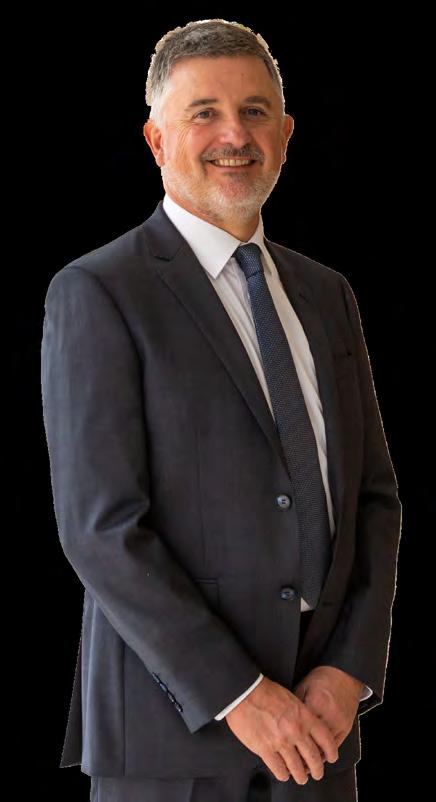
The confirmation of a conditional sale of Trustpower’s retail business reaffirms how crucial it was for Trustees to act when we did to ensure that the rebate was protected for our existing beneficiaries under a change of ownership.”
– Bill Holland
Chairman of TECT, which has a significant share in Trustpower, Bill Holland said the confirmation of the sale underscored the need for the changes to TECT and the importance of trustees acting when they did.
“The confirmation of a conditional sale of Trustpower’s retail business reaffirms how crucial it was for Trustees to act when we did to ensure that the rebate was protected for our existing beneficiaries under a change of ownership.
The proposed acquisition comes after the company announced earlier this year that it was undertaking a strategic review to test market interest in its retail business while exploring the merits and business case to establish a standalone generation business.
Trustpower Chair-
retaining Trustpower’s Tauranga and Oamaru offices for the foreseeable future.
“Mercury clearly understands the business and the strategic value of a proven multi product offering, quality customer base and opportunities for future growth,” said Ridley-Smith.
“Until the sale goes unconditional and then completes, it is business as usual for Trustpower. We will continue to do our best for our customers until the business joins with Mercury.”
Trustpower Chief Executive David Prentice said the opportunities for employees has been an important consideration in this process.
“The capability and performance of our people is what makes the difference for our customers, communities, and shareholders,” said Prentice.
“The majority of employees will get the opportunity to transfer to Mercury and of the rest of the employees most will remain with the generation business.”
Equally, Trustpower is confident once Mercury completes the purchase it will maintain and enhance the value and quality of Trustpower’s customer service.
The Urban Task Force for Tauranga was formed earlier this year specifically to represent the local property sector in order to provide strong, informed leadership to our local authorities.
“Overall, our membership of property developers, investors, managers and professionals agree that this Long-Term Plan is one of the most important in our city’s history and we need to get it right,” said UTF Chairman Scott Adams in a statement.
“The capital spend of $4.6 billion in the next 10 years is significant, and our members have one voice that we need to improve the city’s infrastructure and our quality of living, but we do require very clear transparency and accountability on spending.”
Council proposed to increase the Citywide development contributions for new housing by more than $16,000 per house from 1 August 2021. This short notice and significant structural change to development costs, will immediately affect over 200 new homes and homeowners who have signed sale and purchase agreements, but will not have Council consent by 1 August 2021.
“This is a significant increase in cost which in some cases passed directly onto homeowners, and in some cases will pass to a home builder that is contractually bound to deliver a home for a fixed price. This is just not right and the scale of these cost increases simply ripple onto our already stressed housing market,” says Adams.
The Urban Task Force for Tauranga has also voiced concern over where the costs are coming from, with Council identifying the costs from the yet to be built Waiari Water Treatment Plant near Te Puke. The Waiari Water Treatment Plant was funded in 2017 by the Housing Infrastructure Fund, under a 10-year interest free loan, to support infrastructure providing additional water and wastewater for an additional 35,000 homes. Of the $230m announced by the government at the time, of which $114 million was for the Waiari Water Treatment Plant, it is uncertain what, if anything, has been spent. Adams said he had concerns around the transparency of funding.

There’s no shortage of great ideas in New Zealand. But for an innovative bunch, we’re not the best at realising the full potential of our innovations, particularly when exporting them.
At James & Wells, we can identify your competitive edge, offer business strategies for specific markets and help you own and leverage your intellectual property to ensure no one steals the fruit of your labour.
Award winning Bay of Plenty strategic communications consultancy, The Shine Collective, struck gold again recently at the Public Relations Institute of New Zealand (PRINZ) Awards for its work with Te Arawa Covid Response Hub, supporting the trial of a Covid contact tracing card.
Shine’s winning entry, “’Stamping out Covid with a digital handshake”, took out the top spot in the Community Relations and Engagement category.
The Shine Collective (with offices in Tauranga and Rotorua), undertook the entire project management and responsibility for developing and implementing the communications strategy in partnership with Eruera Keepa from Hīkina Consultants.
In August 2020, the New Zealand Government partnered with Te Arawa to trial a wearable contact tracing card that could potentially support the country’s contact tracing efforts.
The card used Bluetooth technology to exchange ‘digital handshakes’ and recorded participants close contacts – a potential addition to using the NZ Covid tracing app. Community-led strategy
Shine’s managing director, Jacky James, said a key success factor for the kaupapa was that it was community-led, and that its communications strategy reflected the local community.
“The philosophy behind our communications strategy was simple and based on authentic two-way engage-

Award winners:Left to right:AllyArmstrong,Eruera Keepa (Hīkina Consultants),Stacey Main,Shae Skellern,Meg Jones,Monty Morrison (TeArawa representative),Julie McGlashen,Jacky James.
ment, with the principles of tikanga Māori at its heart – for both Māori and non-Māori,” she said.
“Anyone over the age of 19 who lived and/or worked in the small community of Ngongotahā were encouraged to participate in the trial.
“The trial’s kaupapa was to understand how well the contact tracing cards performed in a real-world scenario, whether they would work
By DAVID PORTER
Working on New Zealand roads is now a whole lot safer thanks to Tauranga firm Road Science, which has devised a way to substantially reduce the time their staff spend standing in the road corridor.
The innovation saw Mount Maunganui-based Road Science’s Mobile Data Capture Unit recently win a major category at the 2021 New Zealand Workplace Health & Safety Awards for the “best initiative to address a work-related safety risk”. Road Science staff often need to take measurements required for road maintenance programmes. They typically used to survey 1km per day, but a combination of new technology –one item of which is a high-tech mobile mapper (the only one of its kind in New Zealand) – means 50km
a day can now be surveyed from the safety of a vehicle instead of standing in the road corridor surrounded by traffic.
“I’m incredibly proud of the dedication and professionalism our team display on daily basis and this award is great recognition of the work that’s gone into improving both safety and productivity outcomes,” said Road Science spokesman Richard Carter.
Road Science wanted to be proactive, rather than just compliant, in their health and safety approach, so the company invested in a Leica Pegasus Two Ultimate (P2U) Mobile Laser Scanner from Switzerland which is a precise geospatial tool.
“The beauty of this machine is that it does a million scans a second while traveling at speed. We’ve got it installed in the back of a ute. We drive down the road at 80km/hr and for the bulk of the tasks we do in transport
with the contact tracing systems, and if people will accept and use them.
“The trial itself actually exceeded all expectations with over 1,200 people signing up to participate.”
Te Arawa Covid-19 Response Hub spokesperson, Monty Morrison says the Hub is honoured to be recognised for the hard mahi involved with the Covid contact tracing card trial.
“The team set out to design and deliver a successful community engagement strategy and that is exactly what they achieved, coupled with incredible community support, we feel we have significantly contributed to Aotearoa’s efforts to stamp out Covid-19.”
The Shine Collective is a professional strategic communications consultancy that provides an exten-
sive range of communications, marketing and public relations services throughout the Bay of Plenty, New Zealand and Australia.
The PRINZ Awards recognises and celebrates the cream of public relations and communications management professionals in Aotearoa and their outstanding and often life-changing work.

and road construction, it picks up this same information, to the same – if not greater – accuracy than a surveyor.
“We can substantially reduce people’s time spent standing in, and around, the road corridor and therefore people’s exposure to traffic hazards is greatly reduced.”
Carter says by replacing outdated methods and work practices, the Mobile Data Capture Unit has revolutionised Road Science’s business. In addition to speeding up the surveying process and reducing health and
safety risks, the technology captures comprehensive information that can be re-used over and over again.
“You can go get all the roading information you need, but you also get all the signposts, all the safety crash barriers, all the line marking, all the trees, all the power line clearances… it saves having to send a surveyor out repeatedly to do different tasks.”
Doug Carrasco, General Manager Transport Technology for Road Science, said while this technology was
now available in New Zealand, its benefits will only be realised through increase in its usage. “Road Science urges road, rail and port authorities to embrace this technology to achieve higher quality outcomes whilst eliminating risk to personnel.”
The P2U laser scanner can be used to scan sections of railway lines to help plan upgrades and to check tunnel clearances to ensure construction equipment will fit. It can also be used to build 3D model of any yards or port facilities.
Domain name complaints involving .nz domains have become something of a rare beast. In 2011, 11 decisions were issued under the .nz Dispute Resolution Service Policy (DRSP). So far this year, only one has been issued.
The decision is an interesting one, however, and serves as a timely reminder to businesses to future-proof their domain name rights.
The subject domain name was jetcharge.co.nz. The parties to the complaint were Jet Charge Pty Ltd and a Mr Russell Shepherd, an Australian resident. More about them shortly.
Under the .nz DRSP, a complainant has to establish two things: first, that it has rights in respect of a name or mark which is identical or similar to the subject domain name; and, second, that the subject domain name, in the hands of the registrant, is an “unfair registration”.
When is a registration unfair?
A complainant can demonstrate ‘rights’ in a name or mark by presenting sufficient evidence of use of a name or mark or evidence of a registered trade mark.
An “unfair registration” means a registration which “was registered or otherwise acquired in a manner which, at the time when the registration or acquisition took place, took unfair advantage of or was unfairly detrimental to [a complainant’s rights]”, or “a registration which has been, or is likely to be, used in a manner which took unfair advantage of or was unfairly detrimental to [a complainant’s rights]”.
The DRSP contains examples of what might constitute an unfair registration: two examples are registering a domain name to stop a rights holder from registering it (i.e. a “blocking” registration), and registering a domain name primarily for the purpose of
unfairly disrupting the business of a rights holder. These two examples featured in the jetcharge.co.nz decision.
Back to the story: the complainant, Jet Charge Pty Ltd, was/is an Australian company incorporated in June 2014 providing installation, servicing and delivery services for electric car charging stations in Australia under and by reference to the trade mark JET CHARGE.
Jet Charge also provides charging stations and accessories, and associated firmware and software for charging electric cars using the JET CHARGE mark. Its website is at www.jetcharge.com.au.
jetcharge.co.nz on 16 July 2017 – approximately two years before the priority date of Jet Charge’s New Zealand trade mark registration.
Mr Shepherd claimed he had “interests, business operations and premises” in New Zealand and intended “to make use of the Domain Name for the purposes of further extending his business interests in New Zealand”.
Unsuccessful attempts by Jet Charge
Between June 2019 and May 2020, Jet Charge tried unsuccessfully to persuade Mr Shepherd to transfer the registra-
if the future expansion of your business potentially requires you to register a domain name in another country, take whatever steps are necessary as soon as possible to register that domain name.”
Jet Charge owns New Zealand trade mark registration no. 1131753, which covers the trade mark JET CHARGE in classes 9, 37 and 42.
The application for the mark was filed with IPONZ on 7 October 2019 and claimed priority back to 27 May 2019. The goods and services of the registration reflect Jet Charge’s business as described.
The respondent was Russell Shepherd, an Australian resident associated with a direct competitor to Jet Charge in Australia called EVolution Australia.
Mr Shepherd registered
tion to it. Having failed, Jet Charge filed the domain name complaint.
Before the Expert, Jet Charge contended that it had registered and unregistered rights in the jetcharge.co.nz domain name, and that Mr Shepherd’s registration was “unfair” because he did not have any “legitimate interest in, or use for, the registration or use of the words “Jet Charge” either as a trade mark or a domain name”, because he registered the domain name to disrupt Jet Charge’s business, and because his retention of the domain name, despite


>BY BEN CAIN
Ben Cain is a Senior Associate at James & Wells and a Resolution Institute-accredited mediator. He can be contacted at 07 928 4470 (Tauranga), 07 957 5660 (Hamilton), and benc@jaws.co.nz.
requests to cancel or transfer it to Jet Charge, meant he was using it as a blocking registration. (Jet Charge also contended that a temporary re-direction of jetcharge.co.nz to evolutionaustralia.com.au was “very likely to confuse, mislead or deceive people” but this argument is not relevant to the point of this article.)
In reply, Mr Shepherd pointed out the two years between registration of the domain name and Jet Charge’s trade mark in New Zealand, and asserted, among other things, that:
• The complaint was “an opportunistic attempt [by Jet Charge] to obtain the domain name by force which demonstrates poor planning and a sense of entitlement by [Jet Charge]”; and
• That having “…“a (belated) trade mark” and desires to extend its business operation into New Zealand should not give [Jet Charge] a right to the JET CHARGE name in [New Zealand]. Applying the DRSP to the evidence, the Expert found that Jet Charge had rights in
JET CHARGE New Zealand by virtue of its trade mark registration; however, the Expert did not find that Jet Charge had unregistered rights – i.e. it had reputation and goodwill –in JET CHARGE in New Zealand before or after the domain name was registered because it had failed to file “any meaningful evidence” supporting its assertion of rights.
Registration not unfair
Even though it had rights in JET CHARGE, the Expert found that Mr Shepherd’s registration – and continued registration – of jetcharge.co.nz was not ‘unfair’.
The reasons why again came down to evidence –or rather the lack of it. Jet Charge failed to prove that when Mr Shepherd registered the domain name, Jet Charge had any rights in the JET CHARGE trade mark in New Zealand.
It also failed to prove that, when he registered the domain name, Mr Shepherd had any knowledge of Jet Charge’s future plans for expansion into New Zealand. Jet Charge also
failed to prove it had an interest in using the JET CHARGE mark in New Zealand. The domain name is not currently being used by Mr Shepherd or EVolution Australia.
If Mr Shepherd decides to use it in the future, however, Jet Charge could lodge another complaint in an effort to retrieve it. For now, though, Jet Charge must find another domain to use.
The crucial lesson for businesses to take home from this article is that – as Mr Shepherd’s comments highlighted –if the future expansion of your business potentially requires you to register a domain name in another country, take whatever steps are necessary as soon as possible to register that domain name.
Such steps might include obtaining a trade mark registration in a country of interest, even if it is unlikely you will use that trade mark in that country for a few years.
(The other lesson is that if you are going to make a complaint under the DRSP, make sure you file enough of the right evidence…)

A quick search on Google and you will find the verdict is still out. The contrasting views on whether technology or social platforms truly effect our mental health are endless. Academic studies vouching for each side making it relatively tricky to navigate what is accurate and what is based on theory.

>BY MARIETTE TOLMAY
Mariette Tolmay is the marketing lead at Stratus Blue. She can be contacted at mariette@stratusblue.co.nz.
igging deeper into the research does however paint a picture that technology and social platforms, when combined with what is required in life to keep a mind and body healthy, does leave a fine line to walk.
When we think of “health” for our body and mind, we know the basics, eat well, exercise, get enough sleep, be productive, spend time with loved ones and take some time out to relax. We also know there are only 24 hours in a day.
In most cases, eight hours of that are spent working, most likely behind a screen. And, according to a study done by RescueTime across 11,000 users, an average of 3.15 hours a day was spent on smartphones (that’s 47 days a year).
The study also concluded that over 60% of those users
checked their smartphones over 50 times a day generating a behaviour of “Multitasking” with the remote distractions aided by technology.
Based on cognitive science and more recent studies on multitasking by Paul Atchley, Ph.D. a professor of Cognitive Psychology at the University of Kansas, multitasking as we think of it scientifically does not exist.
It has been found to increase the production of the stress hormone cortisol as well as the fight-or-flight hormone adrenaline, which can overstimulate your brain and cause mental fog or scrambled thinking. Multitasking creates a dopamine-addiction feedback loop, effectively rewarding the brain for losing focus and for constantly searching for external stimulation.”
In Layman’s terms, we have conditioned ourselves to believe we are being present, and productive when our brains are constantly functioning from a place of urgency, distraction, stress and information overload. And we are doing so for hours on end.
When we add in the hustle and bustle of life, traffic, dinner times, Netflix and the recommended sleep time of six hours, how much time are we left with to spread across our weekday for selfcare and quality connections with those we love without interruption?
Although the research on the effects technology and social media has on our mental health is inconclusive, the

neuroscience behind our brains function and the lack of more hours in a day does beg to question whether we are using the time we have, to be productive and present?
And are we prioritising what benefits our mental health in the long term?
If you’re like me, and fall into those statistics, of over three hours of screen time and constantly picking your phone up. It might be thought-provoking how frequently we are “too busy” to do the things we love or to spend more quality time with our kids.
How do we get that time back? (22 hours a week).
With cold turkey off the menu for us working folk, using monitoring apps such as RescueTime, Apple’s Screen Time and Google Digital Wellbeing can seem like a canny way to cut down on phone use.
Although my research didn’t give me definitive answers to the effects of technology use on mental health, the numbers had me looking for tips for a healthy relationship with technology:
• Setting a schedule and a time limit for social media and news platforms.
Switching off notifications for apps that are not required for work.
• Reducing screen time before bed – sleep mode on smartphones.
• Implementing more technology free time.
• Set limits around response times to messages.
• Delete apps that don’t benefit me. The only trouble is, as Audre Lorde said, “the master’s tools will never dismantle the master’s house”. So, mediating our technology habits are going to depend mainly on our own self-awareness, common sense and willpower – with other tactics being useful but supplementary.

Goodman Fielder has launched ‘Better Together’, an ambitious new sustainability strategy designed to help embed sustainability across the company’s business, culture, brands and products.
Developed to support global efforts to deliver the UN 2030 Sustainable Development Goals (SDGs), the ‘Better Together’ strategy highlights nine progressive new sustainability goals, including net zero emissions by 2040, 100% recyclable packaging by 2025, and to halve food waste by 2030. The leading food manufacturer, which has a factory in the region, has outlined a number of goals, according to a company statement. These include:
1. Net zero emissions by 2040.
2. 100% recyclable packaging by 2025.
3. Meaningfully improve the nutritional value of its product by 2025.
4. 100% sustainable packaging materials by 2030.
5. 100% renewable electricity by 2025.
6. Reach 40m with its sustainability message by 2030.
7. Halve food waste by 2030. 8. 100% sustainably sourced ingredients by 2030.
9. Develop a diversity, inclusion, and Indigenous recognition plan in 2021.
Products touch millions
Bernard Duignan, Goodman Fielder NZ CEO, said: “Our products touch millions of people every day and we are committed to using that reach as a force for good. We are thrilled to launch ‘Better Together’, an important milestone for the Goodman Fielder family.
“By driving progress against our four key focus areas of better products, better planet, better business and better communities, this strategy will provide us with a pathway to living our purpose and ensuring food is a force for good.” Duignan said the company was
excited to deliver local solutions to global challenges and continue to make a difference.
“We know that by working together, we can make everyday food better for everyone.”
In 2021 the food company will:
• Move to 100% renewable electricity in New Zealand and Australia. This will more than halve the greenhouse gas emissions from its operations in these countries and provide a pathway for net zero emissions. This initiative is the equivalent of taking 17,000 cars off the road, the company said.
• Complete year three of a four year Network Transformation programme that will see a reduction of 1,745 tonnes CO2 emissions annually
• Switch its fleet of 110 Sales company vehicles to Hybrid models by end 2022, which will reduce fuel consumption of the fleet by 41%
• Eliminate 40 tonnes of PVC packaging in NZ (switching to PET with 30% recycled content), and will remove all PVC from retail packaging across New Zealand and Australia by end 2021
• Replace 100 tonnes of virgin plas-
By driving progress against our four key focus areas of better products, better planet, better business and better communities, this strategy will provide us with a pathway to living our purpose and ensuring food is a force for good.”
–Bernard Duignan
tic with recycled content across New Zealand and Australia Four NZ manufacturing sites are participating in EECA’s Energy Transition Accelerator Program to develop road maps to zero emissions at each site
• Provide logistics support to expand the NZ Soft Plastic Recycling Scheme to the South Island and, by the end of 2023, aim to achieve 1500% increase in Nature’s Fresh bread bags being recycled annually The ‘Better Together’ strategy also showcases some of Goodman Fielders’ recent sustainability achievements. Since 2010 Goodman Fielder
NZ has donated over two million loaves of fresh bread to foodbanks in New Zealand, and launched the Goodman Fielder Cares Trust, which has donated over $300,000 to initiatives helping to fight poverty.
2020 saw the brand deliver a lighting replacement program and generate its first 1000MWh of solar electricity.
Meanwhile in the sustainable packaging space, across the group Goodman Fielder has replaced 100 tonnes of problematic PVC with PET (including 30% recycled content) and removed 185 tonnes of plastic and 100 tonnes of cardboard from its packaging.
There is no doubt we will see higher reported inflation this year. In fact we’ve already seen it – grabbing headlines last month (at least in market circles) were the various US’ April inflation reads.
The Personal Consumption Expenditures (PCE) index (the Federal Reserve’s preferred measure of inflation) was up 3.6 percent, the highest level in over 12 years.
Excluding volatile food and energy, core PCE was still up 3.1 percent, the first time it has started with a “3” since 1992. … but is inflation temporary, or will it be sustained?
In our view, we generally agree with central banks that many of the current inflationary pressures are short-term factors.
The long-term forces that kept inflation low pre-Covid –ageing populations, high debt levels, fast pace of new technology development – are unchanged.
That said: (1) the extent of monetary (low interest rates, quantitative easing, aka money printing) and fiscal (government deficits) stimulus has been unprecedented and the longer-term effects remain uncertain, and (2) justifying

>BY BRETT BELL-BOOTH
Investment Adviser with Forsyth Barr Limited in Tauranga, and an Authorised Financial Adviser. Phone (07) 577 5725 or email brett.bell-booth@forsythbarr.co.nz.
the current extreme policy settings will only become harder if economies continue on their current healthy trajectory.
Jump in bond yields
Year-to-date, longer-term interest rates have firmed reflecting the improved economic outlook and higher inflation risks.
For investors who plan to own bonds to maturity, these “losses” on bonds aren’t permanent – holders will still receive the same interest on their investment and be repaid in full when the bond matures (unless, of course, the borrower defaults).
Equities continue to perform well
Despite the jump in longer-term interest rates, it has still paid to remain invested in equities.
Global equity markets have continued to push higher with
companies generally delivering better-than-expected results benefiting from a combination of improving economic activity and significant cost savings.
New Zealand has remained a laggard
For over a decade the New Zealand equities market has been amongst the strongest in the world. Year-to-date, the position has reversed.
The New Zealand market is dominated by defensive dividend-paying stocks, which many investors look at as an alternative to fixed interest investments such as bonds or term deposits. The rise in longterm interest rates has generally been a headwind for these stocks.
Furthermore, the NZX50 market index is concentrated in a relatively small number of companies — the largest eight companies account for around half the index. What that
means is any price changes (up or down) in these larger stocks has a significant impact on the overall index.
Keep expectations in check
We still advise investors to stick to healthy weightings of risk assets (shares, property) in portfolios, particularly given the low interest rates available on cash and bonds.
We do acknowledge though, there is every chance we could see volatility across the market or within specific sectors or asset classes, impacting portfolio values.
With uncertainties ahead, ensuring you have adequate portfolio diversification (always a mainstay of any investment plan) may prove even more important than usual.
Your Forsyth Barr Investment Adviser is always available to discuss your investment plans at any time.
By ANTHONY HAM
Even with the best intentions, some companies’ spreadsheet-based share registers can get chaotic.
Administrators are juggling multiple, ever-changing sources of information.
The list is long: tracking lots of shareholders with frequent changes to personal contact details, ensuring accuracy in transactions, working out calculations for dividends, giving transparency to investors over their shareholding and keeping up to date on the companies’ office.

The Personal Consumption Expenditures (PCE) index (the Federal Reserve’s preferred measure of inflation) was up 3.6 percent, the highest level in over 12 years.”
This column is general in nature and does not take any of your personal circumstances into account.
For personalised financial advice, contact Forsyth Barr for an overview of the services we can provide.
Having to manage multiple shareholders with multiple holdings can become very complex and get out of control quickly. Be assured that all information is secure and easily managed.
The risks can grow quickly for critical data being lost and/or stolen. And how does it stand up to an audit?
Share transactions are traceable and will stand up to scrutiny of auditors. Payment of dividends is made easy and quick, saving time, and freeing you from the hassle of using a spreadsheet.
Integrated with CloudCheck, Anti Money Laundering (AML) checking is as simple as a click of a button and electronic document storage saves time and effort

and keeps your shareholder related documents secure and easily accessible.
ShareIT features a dividend calculation module which can be configured to calculate and allocate dividends on a per share or total register basis in gross or net amounts making that math not so stressful and easy to do.
What does a user-friendly approach mean when it comes to working with share registers?
Integral’s solution is Sha-

reIT which has all information in one secure location and your company’s share register administrator delivers it through an easy-to-use application.
ShareIT is hosted in the cloud meaning the application is run, secured and in a fully managed environment, without the need to maintain your own server infrastructure.
Integral has worked with clients throughout Australasia, across industries, including Māori trusts and accounting organisations, to develop tai-
lored cost-effective ShareIT solutions to meet the unique requirements and specifications of each industry.
Simplify IT with ShareIT
The absence of a streamlined system for keeping the share register up to date could become overwhelming for private companies, given that the onus is on the company for maintaining that official record of share ownership.


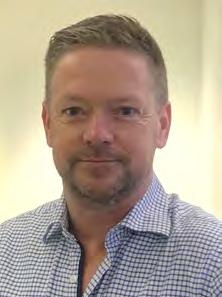
ShareIT is designed to simplify the process, be easy to use and customised for your company’s industry. ShareIT gives assurance for meeting compliance, being accurate, delivering transparency to your investors, and providing peace of mind. Connect with Integral –phone 0800 002 555.


with us:
integral.co.nz info@integral.co.nz 0800 002 555
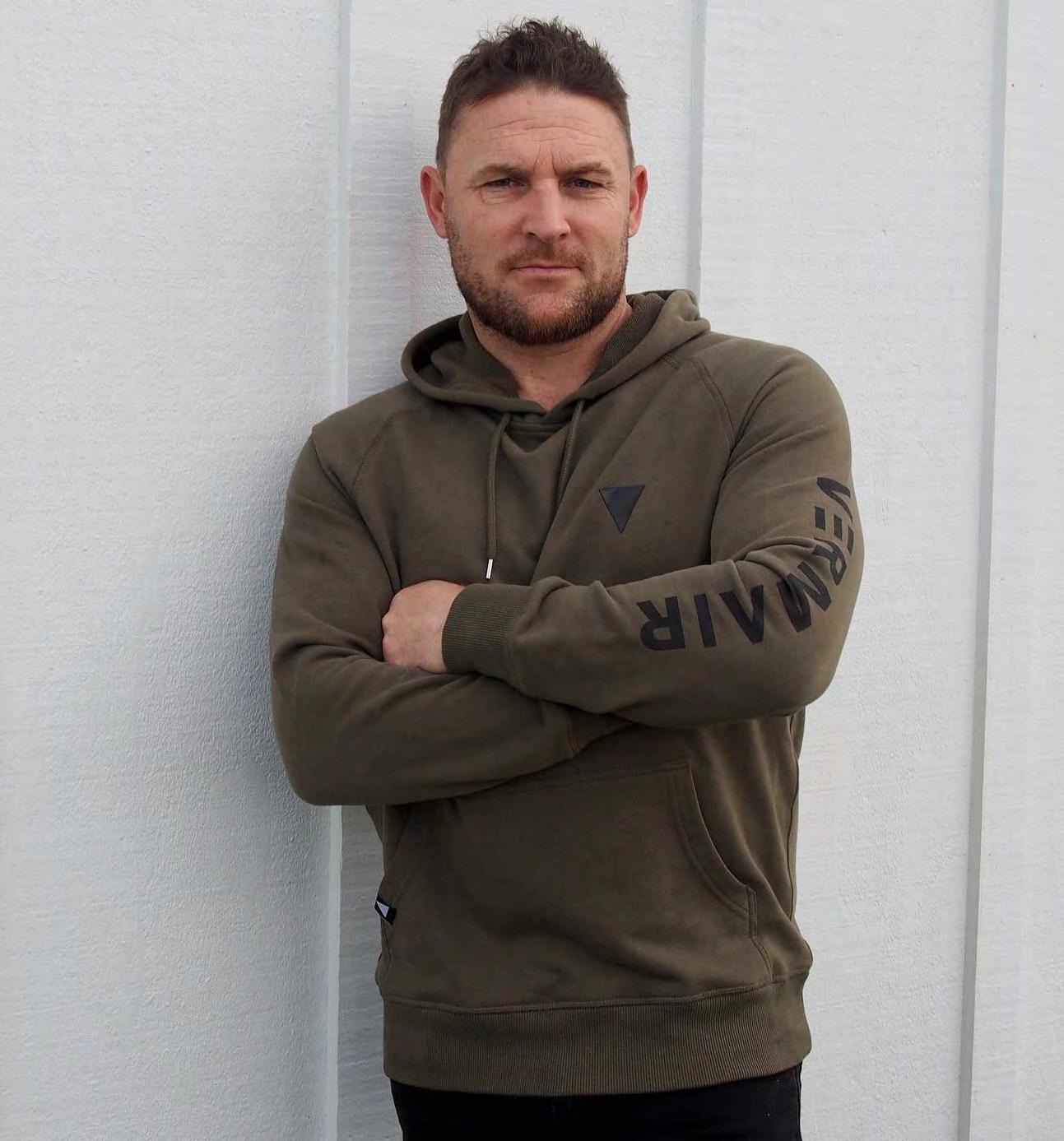

As the temperatures start to plummet around the Bay of Plenty, rug up and head down to Trustpower Baypark where there are plenty of events coming up to keep the whole family entertained.
The Tauranga Gala Dinner
Trustpower Baypark is delighted to be hosting The Tauranga Gala Dinner once again in 2021.
International cricket icon, Brendon McCullum, is gearing up for a smashing night out at the ninth annual Tauranga Gala Dinner on 16 July.
Captaining a stunning evening of entertainment, McCullum will be joined by renowned sports broadcaster, Scotty Stevenson, with national treasures Jackie Clarke, Tina Cross and Taisha Tari supplying incredible live performances with their sensational group, The Lady Killers.
This year’s event will be a spectacular night of wining and dining, insight and entertainment, and locals and legends.
Each year The Tauranga Gala Dinner invites a local charity along to raise funds and awareness via a charity auction at the event. The 2021 charity recipient is Tauranga Te Papa Rotary, who will be raising funds for Cure Kids and the Bay of Plenty Youth Development Trust.
The charity auction is run separately from the commercial arm of the event, with all charitable funds and donations going to the charity.
Get up close and personal with one of New Zealand’s most celebrated cricketers, be enthralled by some of our most heralded singers, and revel in style with your clients, staff and friends for a much-deserved night out (www.taurangagaladinner.co.nz).
Canvas Tauranga Careers Expo 2021
Which University is best?
How do I get into the trades?
Am I doing the right courses?
Should I leave school now?
Can I retrain? How can I make an impact in my job?
The Tauranga Careers Expo 2019 brings it all together in one huge arena, helping you find direction for your next career move. This expo brings together leading busi nesses from across the Western Bay of Plenty’s diverse industry sectors, alongside the best Universities, trade and tertiary training providers from across New Zealand.
Don’t miss this free expo on 30 and 31 July from 10am – 3pm.
Battle in the Bay 2021

Based in the heart of Tauranga, the Bay Twisters is the only not for profit cheerleading club with USASF Coaches in New Zealand.
In 2016 Bay Twisters hosted the first cheer competition in the Bay of Plenty, the event proved extremely popular. There were local and international celebrities, TV appearances and a Guinness World Record attempt to name some of the excitement.
Now in its 5th year and a twoday event, the Battle in the Bay 2021 promises to be a memorable one. 7 August – Teams Compete and 8 August – Specialities Compete.
Audiology present Camo & Krooked
Austrian duo Reinhard Rietsch and Markus Wagner, otherwise known as Camo & Krooked have quickly become one of the hottest production outfits in Europe.
Working together since 2007, the Viennese pair have created a whirl of dancefloor anthems and a fearsome reputation for their untouchable production skills.
Producing soulful, sultry tracks like massive hit single “Turn Up the Music” alongside raw power of smashers like “Climax”, proving that they are not only super-talented, but they are also incredibly versatile.
On the release of their latest album ‘Zeitgeist’ Camo & Krooked toured extensively, playing to full capacity clubs across Europe, Australia and America. This included a sold out tour of Austria with their brand new Zeitgeist production show; an audio-visual spectacular, that is now set for a full tour of major festivals in summer 2014. Camo & Krooked will be performing in Mount Maunganui on 13 August. Tickets will be available online soon. (www.ticketfairy.com)
Benee
Formidable indie-pop sensation and rising global superstar BENEE
announced a nationwide regional tour for August. BENEE will visit every corner of the country, hitting eight different towns and cities throughout the month.
The ‘Supalonely’ singer has had an incredible 18 months, from releasing her debut album ‘Hey U X’, to sharing the album with Kiwi crowds on a sold-out eight-date tour in late 2020 and being named on Forbes 30 under 30 Asia 2021 list. Worldwide streams in the billions have made her one of the most exciting new acts to have emerged anywhere. Following the success of her October tour, BENEE recognised that fans outside the main centres don’t often get the opportunity to experience fullscale pop concerts in their own backyards. Throughout August, she will bring her trademark infectious energy to crowds across Aotearoa to get people up on their feet for a groove-worthy night.
BENEE will perform eight headline shows across the country, visiting New Plymouth, Palmerston North, Porirua, Invercargill, Nelson, Tauranga, Napier and Hamilton. For complete tour, ticket and VIP information go to www.livenation. co.nz.
Premier Venue
Trustpower Baypark is Tauranga’s Premier Venue for conferences, meetings, entertainment and exhibitions. Offering a complete package in one convenient location that features state of the art meeting rooms, in-house catering, audio visual services, professional conference organiser (PCO) and marketing/promotional services.
Sacking an elected council and appointing commissioners to run a council’s governance functions is quite a rare event. Essentially, that situation only arises if there are significant issues within a group of elected members, and they are unwilling or unable to resolve those issues for themselves, in which case, the Minister of Local Government will step-in.
The former Tauranga City Council elected members exemplified dysfunctionality, their conduct marked by infighting; a lack of ‘collective responsibility’; and in some cases, no insight at all into their personal contributions to the council’s problems.
That was the background to the appointment of four Tauranga City Council commissioners in early-February.
Anne Tolley (Chair); Stephen Selwood, Bill Wasley and Shadrach Rolleston (see below for brief profiles on each commissioner) ‘hit the ground running’, and they needed to.
One of the key tasks they were charged with was delivering a 202131 long-term plan (LTP) which would
take the city forward and address its obvious infrastructure and community facility deficits.
“The draft LTP was an enormous piece of work,” Anne Tolley says. “We needed to have a good understanding of the Council business before we could start, and of course, we needed to have the widest possible feedback from the Tauranga community to help us make the final decisions.
“If our efforts are going to have a lasting benefit for the city, we have to take the community with us and that means having the widest possible buy-in to all key aspects of the LTP.”
She says the commissioners are very happy with the feedback they have received via dozens of community engagement opportunities and
face-to-face contact with hundreds of individual residents. “There are some people who are not happy with the priorities set-out in the draft LTP, but overall, most people have realistic expectations – they know something has to be done and are pleased that the city now has decisive governance, which is committed to getting things back on-track.”
Commissioner Stephen Selwood says the inclusion of $4.6 billion of infrastructure development over the next decade is a ‘game-changer’ for Tauranga.
“The Council has a legacy of underinvestment in community facili-
ties (like swimming pools, playing fields, libraries and a museum) and key infrastructure (roads, water and wastewater pipes and treatment plants, etc) because successive councils decided it was better to keep rates down than to invest in the things the city needs,” he says.
“That’s fine for a while, but in the end, it costs everyone, because our infrastructure no longer meets our existing needs, let alone keeping up with the needs of a growing city.
Bill Wasley and Shad Rolleston are the ‘locals’ on the commission. They both come from planning backgrounds and are acutely aware of the issues which have led to a shortage of land available for housing and commercial development.
“We’ve looked at the things we can do to help open-up land for development, because as it stands, houses in Tauranga have become so costly that new home-buyers have been virtually priced out of the market.
“That means prioritising projects like the Papamoa East Interchange and the infrastructure needed for
There’s a clear need for the availability of more affordable housing.” – Shad Rolleston
housing and commercial developments at Tauriko and accelerating the work required so that we can encourage some positive changes in the market, although there is no one ‘silver bullet’ to address the current housing challenges we face,” Bill says.
“In addition, the commitment to facilitating intensification is exemplified by initiatives such as Plan Change 26, which is about providing opportunities for housing in areas such as the Te Papa peninsula,” Bill says.
Shad also points to changes in the development contributions area which are designed to make it easier for people developing community housing and papakainga.
“There’s a clear need for the availability of more affordable housing and while that’s not something the Council is directly involved in, there are some levers we can use to facilitate developments that will make a difference.”

Bill comes from a professional planning background has more than 40 years’ experience in resource management and senior management positions in local government and the private sector, the latter including serving as Company Secretary for the Port of Tauranga Ltd, and a director of its subsidiary companies. Amongst his many current and past governance roles, Bill was the Independent Chair of the western Bay of Plenty’s SmartGrowth partnership from 2001 until his appointment as a Tauranga City Council Commissioner. He has a strong interest in governance and collaborative approaches which achieve integration between spatial planning, economic development, social community outcomes and the necessary funding arrangements.
Shad is a consultant planner and policy advisor with expertise in resource management and Māori relationship management and engagement. He has tribal connections to Ngāti Ranginui, Ngāi Te Rangi and Ngāti Pukenga, as well as affiliations to Te Arawa. Shad’s public service career spans more than 20 years and includes working as a policy advisor and planner for central and local government, specialising in transport and environmental reforms. He has served as a board member on the Ngāti Ranginui Post Settlement Governance Entity; is a former SmartGrowth Tū Pakari Advisor and co-chair of the Combined Tāngata Whenua Forum; and is the current Chair of Arā Rau Tāngata.
COMMISSION CHAIR:
Anne brings a wide experience in local and national politics to her role. Elected to the Napier City Council in 1986, she served as a Standing Committee Chair, and then Deputy Mayor for six years. She was also elected to the inaugural Hawkes Bay Regional Council. In 1999, she was elected to Parliament as a National Party List MP and after moving to Gisborne, was elected as the MP for East Coast in 2005. She held that seat until her in 2020, moving to Ōhope as the growing electorate’s boundary reached the edge of Te Puke. Anne served for nine years as a Government minister, holding the portfolios of Education, Police, Corrections, MSD, Children and Local Government.
Stephen is a professional director and an expert in infrastructure vision, strategy and policy. The founding Chief Executive of Infrastructure New Zealand, Stephen continues to serve as a board member of the New Zealand Infrastructure Commission – Te Waihanga; and provides public policy advice to the infrastructure sector, as a director of Selwood Infrastructure Advisory. In 2019, he received the Infrastructure New Zealand leadership award for his contribution to the industry in New Zealand. Stephen describes himself as a thought-leader who brings a deep understanding of integrated urban development and infrastructure planning, funding and delivery to his commission role.
By CRAIG HUDSON, Xero Managing Director for New Zealand and the Pacific Islands
Acouple of weeks ago, I had the pleasure of attending Fieldays.
It was the first one since 2019 before the pandemic. When Covid19 hit our shores, hundreds of events were cancelled, and thousands of social engagements put on ice.
When I looked around to see reunited friends, family and business partners, what struck me was the atmosphere of relief and revelry. It reminded me of the age old adage: You don’t know what you’ve got until it’s gone.
For an industry as expansive as New Zealand agriculture, the connections we missed from not having Fieldays last year was obvious.
Bringing everyone back together for a few days was a powerful moment, especially as we continue to tackle the stigma of wellbeing in the sector.
Welcome emphasis on mental health
We’ve been present at Fieldays since 2014 and this increased emphasis on mental health and wellbeing has been extremely encouraging to see, especially after the last 12 months.
A lot of the conversations we had were about how Covid-19 impacted workers. Although the agricultural industry as a whole didn’t change much outside of a few clear excep-
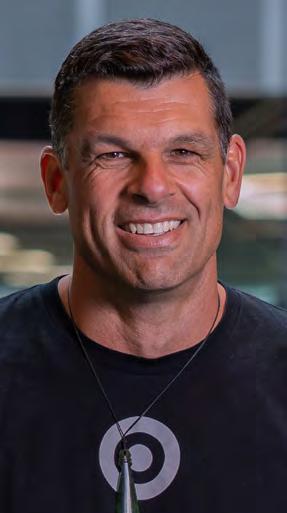
Although the agricultural industry as a whole didn’t change much outside of a few clear exceptions, it certainly impacted how we interacted with people and stayed connected.”
tions, it certainly impacted how we interacted with people and stayed connected.
These pressures, among others, were triggers that saw a dialogue open up on wellbeing – stories that were shared with us at the Fieldays –and I was blown away by the mana of those I spoke to.
It’s becoming increasingly clear that Kiwis are getting more comfortable with their own wellbeing, and with being okay to ask for help. And, crucially, you don’t have to be struggling in crisis to do so.
With this in mind, we’ve been working hard alongside Farmstrong to give farmers some simple steps to support positive wellbeing for themselves and their teams.
These steps include the importance of taking time out; managing stress and avoiding burnout; and practicing healthy thinking.
That last one can be tricky, but there’s a simple trick to catching it.
Healthy thinking teaches you to ask three key questions when you’ve caught a negative thought. Is the thought true? Is it worth it? Does it help me achieve my goals? If it’s unhelpful, come up with alternative ways of thinking about the situation.
Prioritising wellbeing doesn’t have to be complicated or expensive. It can be as simple as practising mindfulness, breaking things down into small, manageable steps such as focusing on one job at a time and delegating tasks.
And if you do need to talk to
six
“A star-studded, entertainment spectacular” is how this year’s Tauranga Gala Dinner is being described. Back for its ninth year, the 2021 edition will be held on Friday 16 July at Trustpower Arena to an audience of several hundred locals and visitors.
Featuring cricketing legend, Brendon McCullum, and renowned sports broadcaster, Scotty Stevenson, the Tauranga Gala Dinner will not only be a chance to hear from the star former Black Cap, but will also be an evening of revelry and celebration, with national treasures, The Lady Killers, taking the stage.
The group is made up of a trio of New Zealand’s most acclaimed performers, including Jackie Clarke, Tina Cross and Taisha Tari, who will provide a stunning showcase of hits to ensure this year’s event is an unmissable gala night out for Tauranga.
Organisers, Events Innovated, say that is what this year’s event is all about; giving Tauranga a big-city event to socialise and enjoy together.
“It’s about creating a special occasion where people
and businesses in our community can come together with good banter, great music, sumptuous food and a chance to dress to the nines and celebrate the night away.”
This year’s event is partnering with local Rotary club, Tauranga Te Papa Rotary, who will lead the charity auction.
Each year The Tauranga Gala Dinner provides a platform for local charities to raise money, run separate to the commercial operations of the event.
Tauranga Te Papa Rotary will be fundraising to support two incredible charities; Cure Kids and the Bay of Plenty Youth Development Trust.
They have some amazing items up for grabs, including e-bikes, luxury experiences, sports memorabilia and more.
The Tauranga Gala Dinner is supported by Bay of Plenty Business News, The Weekend Sun, Media Works,

someone, there are options available like the Xero Assistance Programme (XAP), which offers free confidential counselling to Xero customers.
For many the workplace is a central role
For many people, their workplace can play a central role in building their resilience and positive mental wellbeing. I understand first-hand the impact work can have on your mental health, particularly when you are in crisis.
We also know that investing in wellbeing makes business sense. Economic research from NZIER revealed that wellbeing investment can return up to 12:1 through increased productivity.
A focus on wellbeing will improve the workplace for everyone, and small changes can be immensely beneficial for your team and for your business.
The pandemic brought to light a lot of learnings, and these lessons should remain front and centre for all Kiwis as we continue to recover from the impacts of 2020.
Kale Print, Trinity Wharf, Black Barn Vineyards, Lion and Tauranga City Council. It is produced by local events company, Events Innovated.
In addition to the worldclass entertainment and guest speakers, The Tauranga Gala Dinner includes 3-course meals, fine beverages, charity auction, VIP options and plenty of after-function revelry.
Many local businesses use it as a way to host staff and clients, while groups of friends book tables to shout themselves a much-deserved night out.
Only a few tables are left and bookings close on Monday 12 July.
Information and last-chance reservations are available at www.taurangagaladinner. co.nz

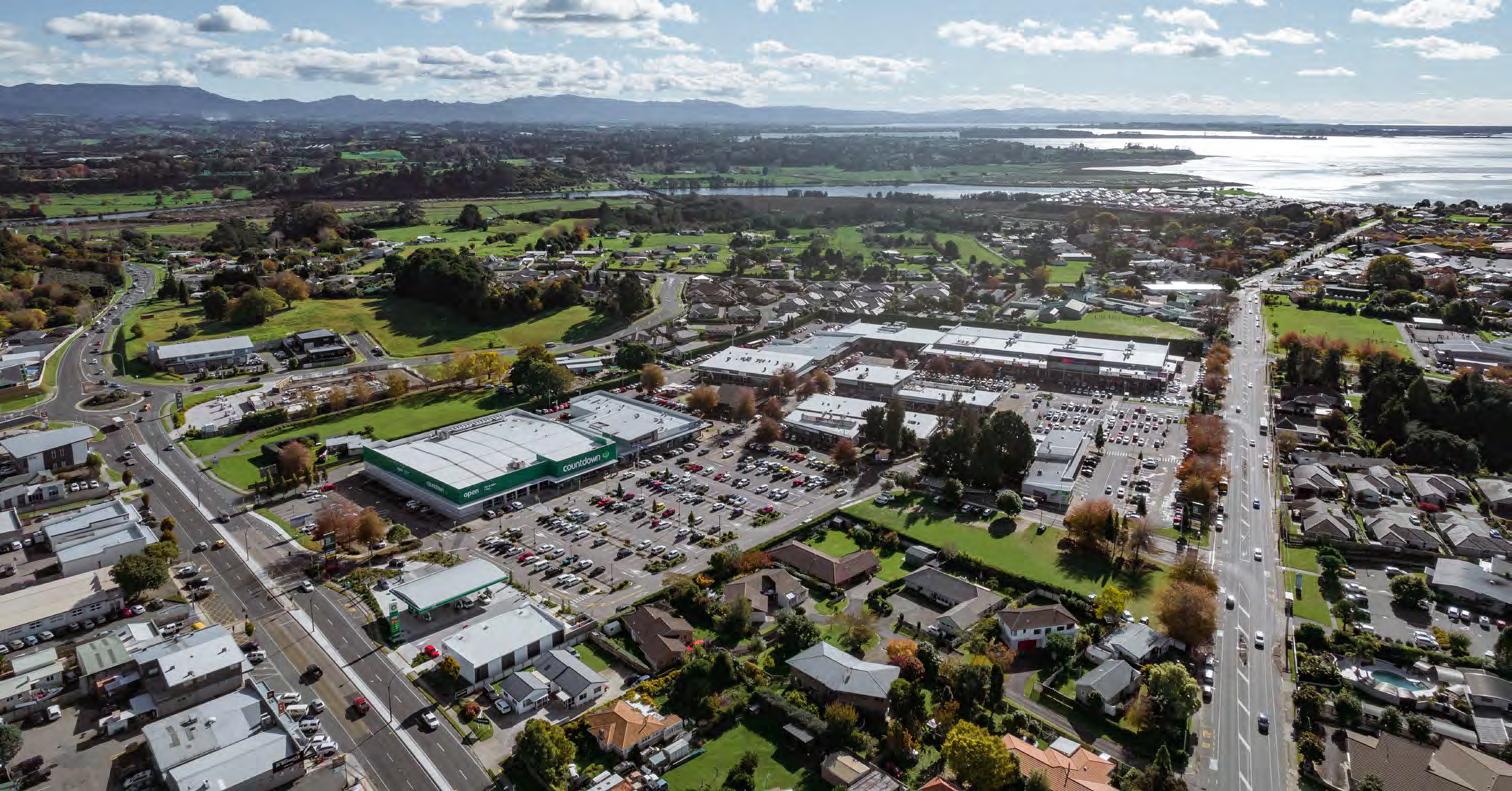
PMG Property Funds Management Limited (PMG), with conservative bank borrowings, is acquiring an industrial property at 11-13 Gough Street in Seaview, Wellington, and the high-profile Bethlehem Town Centre in Bethlehem, Tauranga for an estimated total of around $107.6 million.
PMG chief executive officer and director Scott McKenzie told investors in Tauranga in June that the two properties have a very high occupancy rate with recognised national and multi-national tenants including Kmart, Countdown, BP, Chemist Warehouse and Smiths City (at Bethlehem Town Centre), and HJ Asmuss & Co (in Gough Street).
The latter is a privately owned supplier and distributor of steel in New Zealand with previous clients and projects including Fonterra and the Forsyth Barr Stadium.
According to PMG the acquisitions opened another exciting opportunity to invest in PMG Generation Fund, which offers a mix of industrial, retail and office properties.
Open to all New Zealanders, PMG was offering investors between 63 and 69 million units ($68.67m to $75.21m) at $1.09 per unit in PMG Generation Fund in the offer.
It comes with an accessible minimum investment threshold of 1,000 units ($1,090) and parcels of 1,000 units thereafter, from now until 5pm 29 July 2021 (or earlier if the offer is fully subscribed).
High performing asset
The acquisition of Bethlehem Town Centre means this popular and high-performing large format retail centre will now be owned by New Zealand investors, said PMG.
“We are particularly excited to be providing New Zealanders, including our hometown Bay of Plenty residents, the opportunity to invest in their own backyard and in a high-quality and well-known property at the heart of one of Tauranga’s fastest-growing suburbs,” said McKenzie.
The purchase of 11-13 Gough Street in Wellington will also pro-
vide additional rigour and diversity to PMG Generation Fund’s portfolio, he added.
“The property is close to main arterial networks and is fully leased to Asmuss, a business that was founded in 1920 and has occupied this property for over 20 years, making it an excellent prospect for our investors.”
Getting Kiwis into commercial property
PMG launched PMG Generation Fund in 2020 with the aim of helping more New Zealanders gain access to the benefits of investing in commercial property, providing regular income and the opportunity for good capital growth on their investment.
Additionally, investors have the choice of reinvesting the monthly income the Fund provides into PMG’s Reinvestment Plan, so they can enjoy the benefits of compounding returns.
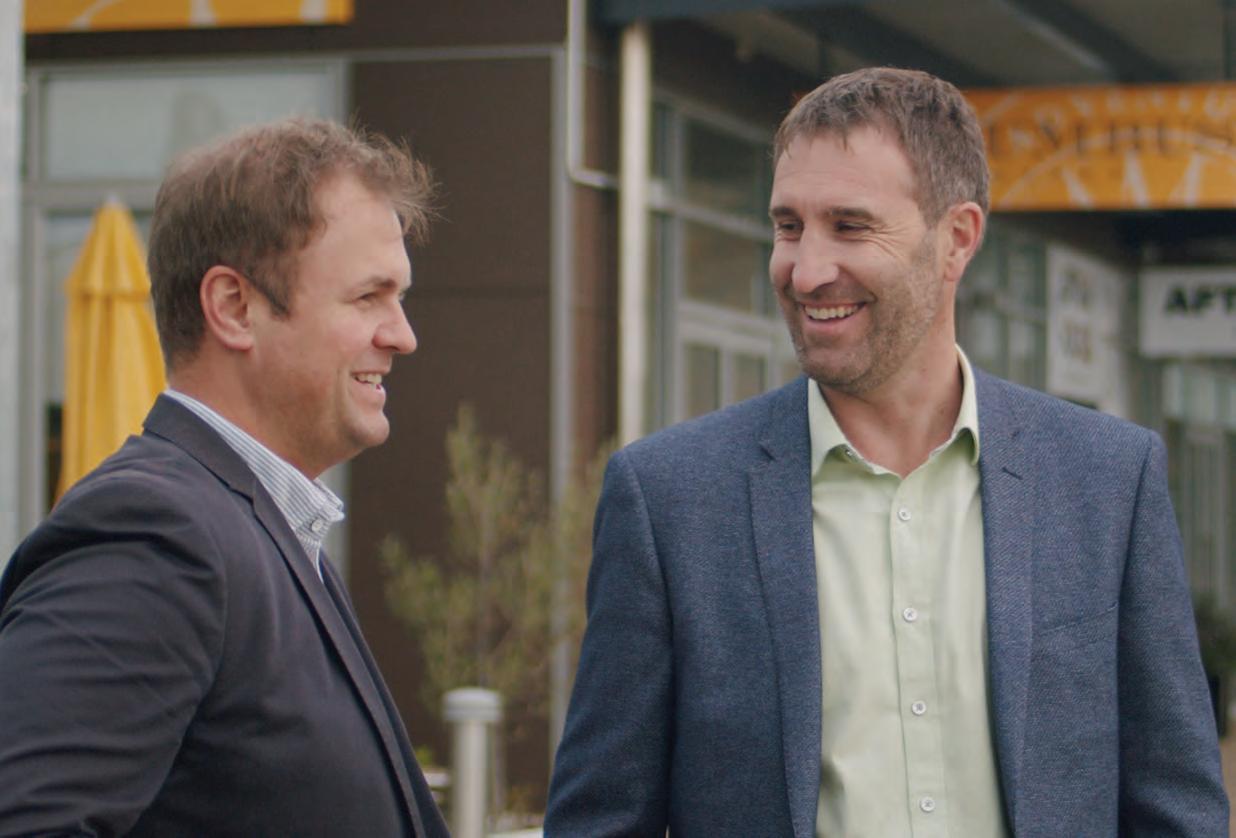
New Zealand, the Fund is further underpinned by notable tenants, including some that are classed as essential services, providing further confidence around the Fund’s income
New Zealanders love land, bricks and mortar, but growing headwinds in residential property investment is now making commercial property a more sought-after investment option.”
–Scott
McKenzie
Following this offer and acquisition of the two properties, the total estimated portfolio value of the Fund will be $166 million, comprising of five quality commercial properties.
With each property located within main metropolitan centres across
resilience for investors.
Denis McMahon, founding director and chairman of PMG, said the quality and scale of the two intended acquisition properties located in Tauranga and Wellington align with the Fund’s strategy – to grow a portfolio
of strategically selected assets that provide building, tenant, sector and geographic diversification.
Since its inception, PMG Generation Fund has delivered a gross cash distribution return of 5.80 cents per unit to its original investors and has seen a significant increase in the value of its underlying property assets.
With a forecast gross cash return of 5.5% p.a, paid monthly, this offer delivers an attractive passive income so investors can enjoy the lifestyle they love, well into the future.
“New Zealanders love land, bricks and mortar, but growing headwinds in residential property investment are now making commercial property a more sought-after investment option,” McKenzie said.
“Historically low interest and term deposit rates mean investors are looking elsewhere for compelling returns.”
According to McKenzie, local investors see New Zealand commercial property as a good place to invest their capital for the long term as a
natural hedge against inflation and for regular returns.
“Our last two investment offers in two of our unlisted commercial property funds were fully subscribed well before the offer close dates. Not only are we seeing more demand from investors in our funds, it is coming faster and in larger parcels.”
The offer opened Thursday, 10 June 2021. Applications to acquire shares must be received no later than 5.00pm 29 July 2021 (or earlier if the offer is fully subscribed). This offer is not available to investors outside of New Zealand.
The funds PMG offers and manages on behalf of investors include PMG Generation Fund, a fund designed to make commercial property investment possible for all New Zealanders; Pacific Property Fund Limited, a fund which invests in geographically and category diverse properties; and funds which invest in category specific assets, including PMG Direct Office Fund, PMG Direct Childcare Fund, and PMG Capital Fund Limited.
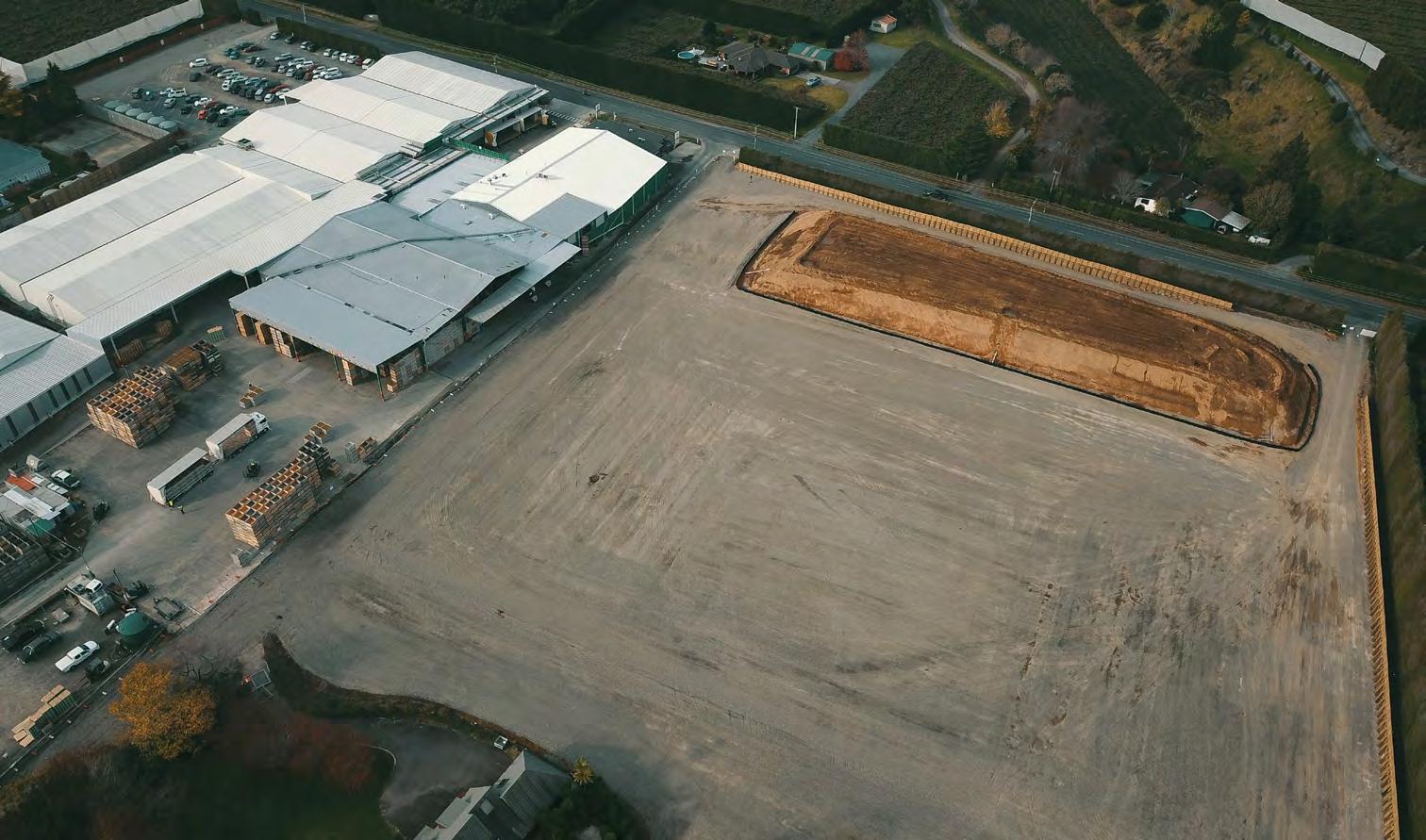
Te Puke’s economy is heading for a $40 million cash injection as DMS Progrowers Ltd has unveiled plans to double the size of its existing local operation – the biggest single investment the company has ever made.
DMS currently packs 14 million trays of kiwifruit between its two sites at Te Puna and Te Puke. Once the new packhouse is completed, the company will have doubled its packing capacity at Te Puke to around 12 million trays per year, increasing overall packing capacity to 20m trays company-wide.
Construction is now underway on a brand new 5400m sq metre packhouse and four new coolstores at the company’s Te Matai Rd site. DMS chief executive officer Derek Masters confirmed Te Puke businesses and contractors will be used for the majority of the expansion project. However, it is understood this does not preclude the use of some outside contractors when required.
“It’s important to look after your own,“ said Masters.
“Te Puke builders, plumbers, electricians, refrigeration specialists, earthmovers, lighting, fire systems, concrete and paneling supplies, along with utility and services’ installation and other professionals and trades, will be used in all cases. We strongly believe in keeping things local and supporting the businesses that are based right here in Te Puke.”
First company since 2018 to build
DMS is the first post-harvest company since 2018 to build a completely new packhouse in the Bay of Plenty, as the region continues to produce record-breaking kiwifruit crops.
“The industry is growing a significant amount of fruit – estimated at 178 million trays this year,” he said.
“And that is only going to increase
Next year, when we have this additional packhouse, we’ll certainly be able to provide more packing slots and help a lot more growers.” –
Derek Masters
as more greenfield developments and Gold conversions come on stream. In the next few years demand for Gold kiwifruit worldwide will continue to rise and so DMS wants to grow its share of that anticipated industry growth.”
Masters said packhouses around the Bay are already working 24 hours a day, seven days a week, during the limited Gold harvest window. Investing in more automation is important but eventually, he said, “you just need more physical space.”
After a year of planning and design, Master said the company was now excited to start building the second packhouse at our Te Matai Rd site in Te Puke.
Temp and humidity controlled
“This is a big thing for us, and a big thing for the town.”
Dave Pharo, DMS Pukepack’s site manager, says the new development

will have a temperature and humidity controlled bin store which will jointly feed both the old packhouse and the new one.
“The four additional coolstores, with a static capacity of 1.5m trays, will be automated with shuttle racking technology which we use in our other coolstores on site.”
State-of-the-art MAF Roda camera grading equipment will be installed, with technicians due to fly out from France early next year to commission the new packing line.
“The second packhouse shed will naturally require additional staff to operate – so that’s a lot of new jobs for local residents as well. The new facilities will all be operational prior to the start of next season in March 2022,” Pharo says.
DMS purchased a 7.5ha site from an immediate neighbour early last year and re-zoned the land for
post-harvest activities. Over the past few months, Te Puke company JMC Earthworks has excavated 35,000m³ of dirt to help construct a flat building platform for the new packhouse.
Tenders for the lead packhouse/ binstore building contract are now open. Te Puke businesses whose involvement is already confirmed include Shawn Williamson Builders (for construction of the four new coolstores), Orr Refrigeration (for the bin store refrigeration plant and cool store refrigeration plant), and Dexion for the shuttle racking.
Meeting frustration of growers
Masters said that as this season has progressed, DMS has noticed a lot of frustration amongst kiwifruit growers about whether their fruit was going to be picked and packed in optimal time because every single post-harvest
operator was flat out.
“Next year, when we have this additional packhouse, we’ll certainly be able to provide more packing slots and help a lot more growers. This $40m development will also give confidence to our existing DMS growers that we will have capacity to look after their future growth as well.”
Based in Tauranga, DMS is a kiwifruit and avocado orchard management and post-harvest operator.
Established in 1989 by Craig Greenlees and Paul Jones, DMS manages over 100 orchards and has 150 full-time staff, employing another 600+ seasonal contractors and workers in Te Puna and Te Puke.
DMS is a member of the G4 Kiwifruit Group, which provides 32% of Zespri’s Class One crop. Locally owned and operated, DMS’ brand promise is “Increasing Grower Profit.”





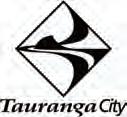
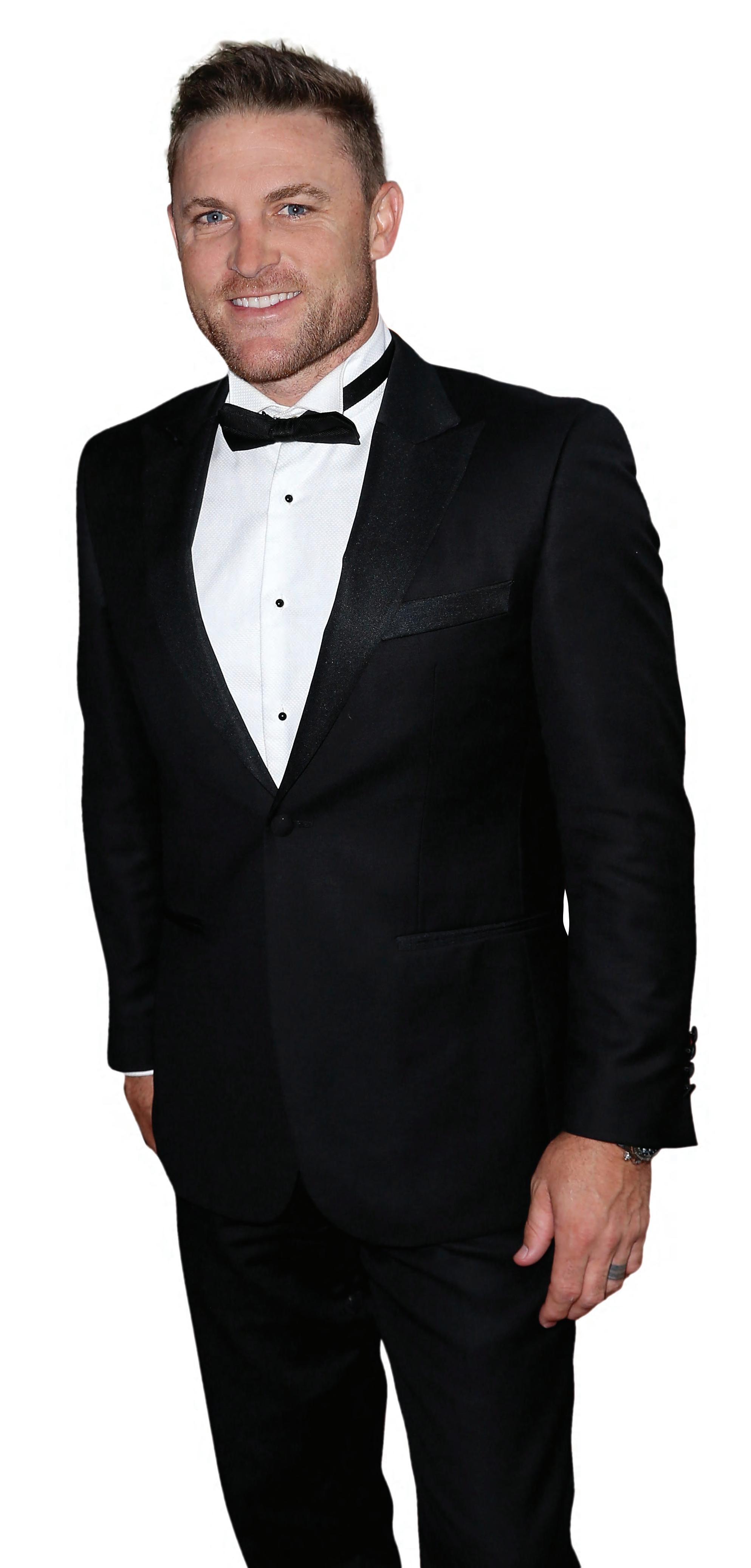

BBN’S GUIDE TO NEW PEOPLE AND NEW ROLES ACROSS BUSINESS IN THE BAY
To feature in New Appointments email us at new.appointments@bopbusinessnews.co.nz
As organisations in the Bay of Plenty bounce back from the effects of Covid-19 some of the region’s largest and most important groups are gearing up with new executive appointments. Please contact us if your organisation has personnel changes you would like to share.
BCD Group is excited to announce the appointment of Alan Woodger as an Environmental Scientist. Alan brings over 14 years of industry experience and valuable knowledge.
Alans’s experience is based in large scale infrastructure projects, the petrochemical industry and contaminated land remediation projects.

More recently Alan has been working on land development projects in the Waikato and the Bay of Plenty, broadening his skill set to include regional consenting onsite wastewater discharges.
With Alan’s experience and knowledge, we now offer his expertise in Contaminated Land Management, including Preliminary and Detailed Site Investigations, Remedial Action Plans, Site Management, and Consent Monitoring.
Toni Owen has been appointed to the Bay of Connections Leadership Group. Toni is a familiar face in the Eastern Bay of Plenty, being a longtime Whakatāne resident and a director of Focus Chartered Accountants.
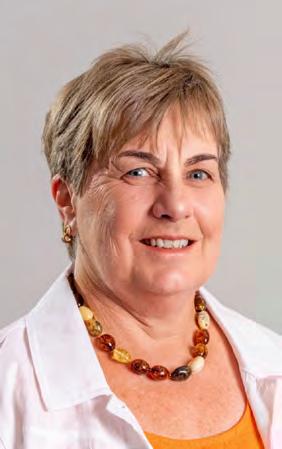
Toni has more than 30 years of business and governance experience with particular expertise in strategic, business and succession planning. She is a Fellow of Chartered Accountants ANZ, Professional Trustee and Member of the Institute of Directors. She has worked with a wide range of rural, commercial and professional clients and is actively involved in a variety of community and charitable organisations. She’s also held governance positions with EBOP Chamber of Commerce, NZCA, Eastern Bay Energy Trust, Energy Options Limited, EECA and Kawerau Enterprise Agency.


First Mortgage Managers (FMM), manager of First Mortgage Trust (FMT), New Zealand’s largest first mortgage trust lender has announced Kylie Boyd as a director. Michael Smith, Chair of First Mortgage Managers says, “We are really pleased to have Kylie join our Board of Directors. Kylie has over 16 years’ commercial law experience and over 10 years’ governance experience, and has very strong commercial, analytical and risk management skills.” Kylie is based in Tauranga and is a former Partner of Sharp Tudhope Lawyers. Kylie has worked with a range of commercial enterprises, both large and small, spanning various industries, including manufacturing, exporting, horticulture, software development and financial services. Kylie is an experienced director and is currently a director for Craigs Investment Partners Superannuation Management Limited, Priority One, Custodial Services Limited, and Bluelab Corporation Limited. Kylie has a BA, LLB (Hons) from the University of Auckland. Kylie will join the Board on 15 June 2021.


What do many successful businesses ranging from those is the trades – electricians, plumbers and builders – through to white-collar professions ranging from real estate agencies to optometrists and even veterinarian practices have in common? They operate under a franchise business model having converted from an independent business model.
Some of the most successful franchise brands have been built on the back of a conversion strategy, but you may ask why an existing independent business would convert to a franchise business model?
Perhaps the biggest driver is brand recognition, which translates into marketing power, position and ultimately a larger share of the market and greater revenue.
As you’re reading this I can suggest some real estate jingles that come to mind as well as a number of trade-related services that start with 0800 name of brand.
All of these businesses are franchises, owner-operated and, in many cases, started as independent businesses.
You can query any skill-specific professional: “You may know your trade, but how good are you at the business?”
The answers can vary significantly. Think about the
If you’re running an independent business –think about your experience of doing those invoices at 11pm on a Friday evening.”
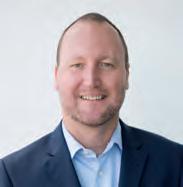
>BY NATHAN BONNEY
Nathan Bonney is a director of Iridium Partners. He can be reached at nathan@iridium.net.nz or 0275-393-022

plumber’s invoice that came a few months after the work, or if you’re running an independent business – think about
your experience of doing those invoices at 11pm on a Friday evening. Franchises provide systems
and processes which will assist the business owner in running the business versus doing the doing.
Additionally, a franchise has the collective resources and focus to innovate and re-invest in the actual doing as well. Often creating commercially beneficial differentiation for their franchisees.
Increasing recognition and revenue in themselves are good things for a business, but reducing costs leads to greater profitability.
Franchise systems are able to collate the purchasing power of their franchisees and provide pricing that an independent could not achieve. These cost savings can be significant and can by themselves change the performance of a business.
A common resistance from potential converters is the perception that they will be giving away revenue to the franchisor in the form of royalties or fees.
I would suggest that even in circumstances where a percentage or a flat fee is paid to the franchisor the accumulated benefits of a good franchise system will far outweigh the fees. It is worth any independent business owners’ time to review and consider.
Many independent business owners never think about their exit strategy, will they be able to sell their business, to whom, what are the unique selling propositions for the business?
A franchise may assist an independent business owner in marketing, attracting and securing a resale. And it will most definitely be able to support and develop the incoming purchaser, freeing the seller to exit and not be incumbered with potentially long or drawnout buyer assistance periods and the like.
Not all franchise models include a percentage or flat fee structure, some systems generate their revenue from rebates from suppliers. In these circumstances the franchisee is benefitting from the purchasing power and lower prices, so there can be a double benefit.
In my work I often hear people attempt to justify sometimes horrendous acts or very poor decisions due to it being something that they had to do to serve a greater “good” or they were contractually obliged to do so.

>BY NICK KERR
Nick Kerr is a Business Advisor at NJK Advisory Ltd.
He is also director of International Private Investigations Ltd.
Nick can be reached at nick@nzipi.com
here comes a time when the excuses that you give yourself no longer work and you must face the fact that doing something that you know is wrong for the “right” reason is simply doing something wrong.
There was a bit of a case in the early 20th century where certain members of a particular European country’s military regime committed unbelievable atrocities against entire people groups that would go against the moral fibre of all but the most depraved humans. I bet if you asked any of them if what they were doing was “right” they would say that they were doing it for the greater good, but looking back I would doubt that this sentiment would be maintained today.
To a far lesser extent I have seen this attitude in the world of professional B2B selling where a salesperson has a target or a goal that they have to achieve and it seems the closer
pany an employment and insurance solution that totaled almost $50,000 (over a payment plan).
According to the business owner the salesperson told him
Attempting to serve two masters with convergent goals and requirements will always create conflict and an inability to ever fully satisfy either.”
to the time limit of this target the more likely it is for doing the wrong thing (in my opinion) to seem ok.
One real life example is a salesperson that sold a com-

practice level, signed up and paid the monthly instalments.
Check the paperwork
that if he didn’t do it he was risking bankruptcy and possible jail.
The business owner, obviously wanting to be compliant with the law and operate at best
He called me and asked me to look over the paperwork to see if he was doing the right thing. After reviewing the paperwork and interviewing him about his business I discovered that not only did he not have any staff at all (he only used limited liability subcontractors therefore did not need to have employment agreements), but if he did have staff he could have got the entire solution from a top local employment
lawyer for under $10,000 and have a relationship formed that could provide support as and when needed.
I myself have faced a similar conundrum, whilst contracting for a large company.
We, as contractors, were asked to encourage clients to load files for action at the same time as setting up systems and processes that would make the need for actioning the files rare if not redundant.
In in this situation we had to choose between giving ultimate and lasting value to the client or giving value to the company and satisfying the
stakeholders. As we became more and more well known for the systems and processes, this issue became more and more evident, resulting in frequent marketing action out to clients encouraging files to be loaded ( to the point where client would block all communication) until the conflict between these two activities became untenable.
The moral of this story is that attempting to serve two masters with convergent goals and requirements will always create conflict and an inability to ever fully satisfy either. Just a thought.
Seeka Limited and Opotiki Packing and Cool Storage Limited are to join via amalgamation, the companies said in a statement.
This transaction will see Seeka expand further to be operational in all of New Zealand’s major kiwifruit growing regions in a deal that continues to consolidate the New Zealand kiwifruit industry.
The OPAC shareholders will receive new shares in Seeka at the ratio of 1.4833 Seeka shares for every 1 OPAC share held, valuing the net assets of OPAC at $33.94m provided OPAC shareholders approve the transaction with a 75% approval required.
Seeka will assume approximately $25.06m of debt as part of the acquisition bringing the total deal to $59.00m.
Long relationship
OPAC’s Chairman, Tony de Farias, in announcing the deal, said: “The amalgamation brings together two companies with a long relationship and similar ownership structures.
“Many OPAC shareholders and growers are also shareholders in Seeka. The Board of OPAC recommends the deal to shareholders believing the enterprise value of $59m to be fair, with good opportunities for growth and synergies.
TABAK Business Sales
was established in 2001 to specialise in the sale of small to medium ($300K to $10M) sized New Zealand businesses.
During the last 20 years the motivation factors for owners to sell their businesses has generally remained the same – retirement, divorce, health, death or wanting a change in lifestyle.
Whatever the reason for selling you need to ensure that your business is ready for sale as you are not always given a warning or time to get it in the best possible shape.
Since post Covid 19 lockdown we have seen an increase in the number of owners who have listed
Seeka expects the bigger business to generate material efficiencies, synergy benefits and cost savings for the benefit of all stakeholders.”
The combined group will deliver efficiencies, new technology and grower support.”
Seeka Chairman, Fred Hutchings said: “The purchase of OPAC is consistent with our strategy and delivers the Eastern Bay of Plenty kiwifruit growing region to Seeka’s operations, a region in which Seeka is already experiencing growth through new orchard developments.
“The transaction is expected to be accretive to shareholders once the combined business is fully integrated. Seeka expects the bigger business to generate material efficiencies, synergy benefits and cost savings for the benefit of all stakeholders.”
The Boards of Seeka and OPAC unanimously recommended the amalgamation.
their businesses with Tabaks suffering from burn out. We have had two sales recently where burn out has been the main reason for sale.
One was due to many, many years in the trade and he was just over the stresses of day-to-day running of the business and dealing with staff and staff shortages.
In the other case, the owner reached breaking point and found himself emotionally, physically and mentally exhausted due to long term stress, and could no longer turn up to work. In another instance, the business owner had been diagnosed with cancer.
All of a sudden quality of life, destressing and spending time with loved ones and taking time to heal
Whakatane Mill owners SIG Combibloc have announced the sale of the mill to a consortium of investors led by European investor Dr Dermot Smurfit.
The announcement means that besides staff who have chosen to take redundancy, more than 200 mill staff will keep their jobs.
Whakatāne mayor Judy Turner said she was thrilled by the news.
“I’m particularly thrilled for the contractors outside the direct employment of the mill as this has been a very nervous time for them and their staff.”
Turner said she was relieved the mill had been saved as its closure and loss of jobs would have been devastating for the local economy.
“To the new owners, congratulations and well done. We’re really pleased to have you on board.”
Relief at the announcement
Karl Gradon of Toi Economic Development Agency said close to 300 families would be breathing a sigh of relief with the announcement.
“We really welcome Smurfit to the business community.
“We have a wonderful opportunity to take the momentum that Smurfit brings to their alternative to plastic packaging technology, and it looks like we will have an impressive customer base that they will link Whakatāne Mill into globally,” he said.
“It’s very exciting for us.”
However, Gradon expressed caution, saying while this was good news there were still clouds on the
themselves, took precedence over the stress of running the business. Money and reputation etc all of a sudden takes a back seat.
In the cases mentioned above the business owners had not intended to sell and found themselves ill prepared for sale.
In the ideal world we like to work with business owners for a period of time to assist with the preparation of their business for sale.
This can include making sure their financials exclude any personal items which have become blended in with the business expenses over time, and making sure customers contracts, leases, health & safety and employments contracts are all current and up to date.
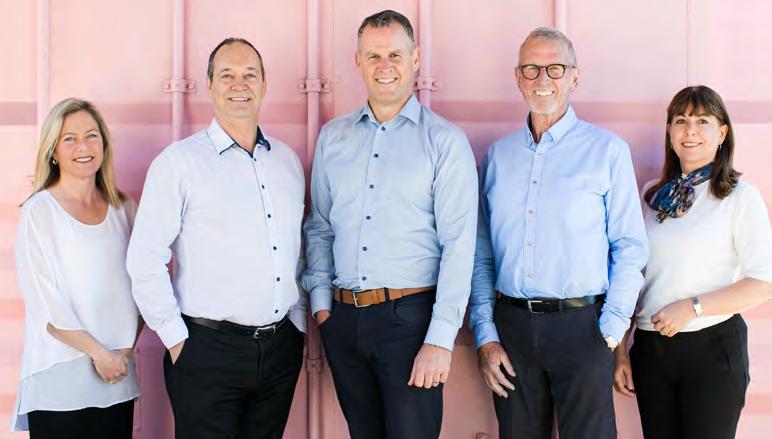
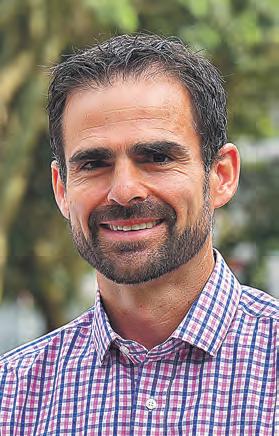
horizon with the fibre-processing sector.
“China has announced self-sufficiency in logs by 2035, which creates significant risk for the forestry sector.
“The majority of New Zealand logs are exported to developing countries in their raw form in anticipation of their domestic logs becoming available in just a few years. Toi EDA encourages the government to work on policy that incentivises investment in added value processing in New Zealand, rather than shipping the value creation offshore.”
The Smurfit Consortium includes
China has announced self-sufficiency in logs by 2035, which creates significant risk for the forestry sector.”
–Karl Gradon
New Zealand investors, and many have experience in owning and operating paper packaging businesses.
A spokesman for the Smurfit Consortium, Ian Halliday, who will become chairman of the Whakatāne Mill, said the consortium looked forward to developing a more competitive operation to support customers in New Zealand and around the world.
“We believe that the Whakatāne Mill has a very bright future as the only folding box board mill in Oceania, and we intend to invest heavily in the mill to support both our customers and New Zealand’s forest products industry,” he said.
The mill will stop producing liquid packaging board and going forward will focus on its customers’ requirements for high-quality folding box board, carrier board and food service.

In some ways it is a bit like selling a house or a car. To get the best sale price you make sure that it is presented in the best possible way i.e neat and tidy with a little bit of maintenance where necessary.
If the situation allows, business owners should start talking with their professional advisors and a business broker well before listing their business for sale.
>BY PAUL BRLJEVICH
Director at TABAK Business Sales. Paul can be reached on 027 693 4079 or paulb@tabak.co.nz
I have personally worked with a business owner for six years before they decided they were ready to go to the market. When it was taken to the market the business was in the best shape possible.
The average sale time for all businesses (industry wide) listed for sale in New Zealand in 2020 was 6 months so the sales process from start to finish is

not necessarily a quick one. However we have recently marketed a business and had over 60 enquiries within 72 hours and had multi offers within 10 working days. I would love to say this is the normal but it is not.
If you are a business owner, make sure that your business is in good shape so that if the unthinkable does happen your business is ready for sale.
Increased sales, the ongoing expansion of Zespri SunGold Kiwifruit production and great quality fruit underpinned by strong international demand have delivered a record result for Zespri’s 2020/21 season, returning record per tray returns across all categories, said the marketer in a statement.
Zespri’s 2020/21 Financial
Results show total global revenue generated by fruit sales reached NZ$3.58 billion, up 14 percent on the previous year, while total global operating revenue increased by 16 percent to NZ$3.89 billion. Global sales volumes were up 10 percent on the previous year to 181.5 million trays. Direct returns to the New Zealand industry increased by 15 percent to $2.25 billion in spite of the considerable uncertainty generated by the Covid-19 pandemic. Earnings are spread through many regional communities including the Bay of Plenty, Northland, Nelson, Gisborne, and the Waikato, providing support to people, communities and businesses across the country.
There were strong returns on both a per tray and per hectare basis:
• The average return for Zespri Green per tray increased to $7.51, with the average return per hectare reaching $76,722.
• Zespri Organic Green reached an average return per tray of $10.53, and an average per hectare return of $66,453. The average return for Zespri SunGold Kiwifruit increased to $12.46 per tray, and the average return per hectare was also a record $177,846.
• Zespri Organic SunGold Kiwifruit saw a per tray return of $15.36, with the average per hectare return reaching $158,599.
• Zespri Sweet Green achieved an average return per tray of $10.14 and an average return per hectare of $56,853.
Zespri’s Non-New Zealand Supply sales increased to $472.8 million while Zespri’s net profit after tax is $290.5 million, up from $200.8 million on the previous year.
Zespri chairman Bruce Cameron said the results reflected the continued strong demand for Zespri Kiwifruit around the world, boosted by the industry’s hard work and investment
to increase demand and supply.
“After a season where we were forced to make such significant changes to our operations with a focus on keeping our people safe, getting our fruit to the world, and continuing to invest for the future, it’s pleasing to see such encouraging results for the industry,” said Cameron.
Demand increasing
“Demand for both Zespri Green and Zespri SunGold Kiwifruit increased and we’re pleased to see growing interest in our newest variety, Zespri Red, which is a testament to our industry’s ongoing investment in
We’re also encouraged by the growth in sales of our Non-New Zealand supply, with strong returns to our partner growers in Italy, France, Japan and Korea.” – Dan Mathieson
innovation and finding new ways to add value for New Zealand and our international production bases.”
Zespri’s chief executive officer
Dan Mathieson said the 2020/21 season again showcased the strength of the Zespri brand in delivering value, attracting new consumers and supporting communities.
“The unity of our industry allowed us to respond effectively to incredibly difficult conditions around the world. That response was underpinned by our investment in the Zespri brand, the trust we have built up with our customers and consumers globally and the resilience and adaptability of

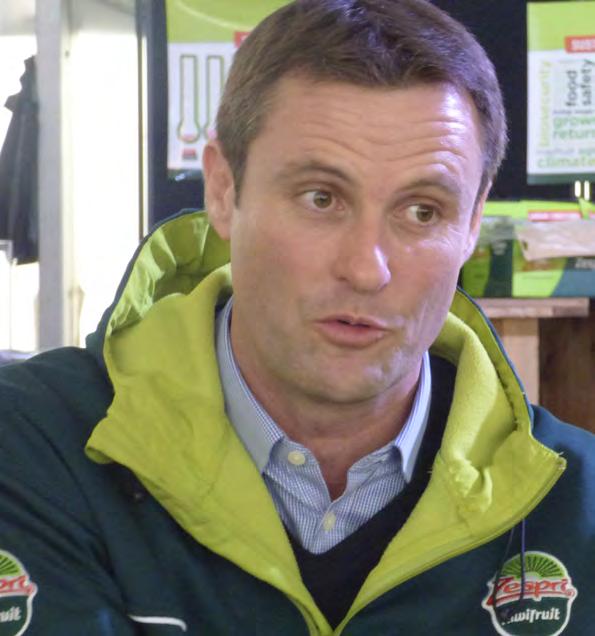
our supply chain and sales and marketing teams.
“The efforts of our people right throughout Zespri and our supply chain were critically important and we’re incredibly proud of the way they responded and of those members of our team who are still dealing with the ongoing impacts of COVID-19 around the world.
“We’re also encouraged by the growth in sales of our Non-New Zealand supply, with strong returns to our partner growers in Italy, France, Japan and Korea. These production bases are a critical part of Zespri’s 12-month supply strategy.
“12 month supply means we’re available to consumers year round, hold our shelf space and commercial partnerships, ensuring Zespri growers maximise the benefit from the increased international demand we’re creating, making our marketing and promotional spend more efficient and
delivering stronger returns to growers in New Zealand and around the world.”
With the 2021/22 New Zealand season now well underway, nearly all Zespri SunGold Kiwifruit has been submitted into inventory and the harvest of Green is in full swing.
Mathieson said Zespri was expecting another record-breaking crop of Zespri Kiwifruit this year, again underpinned by the expansion of Zespri SunGold Kiwifruit production as well as Zespri Red.
“Our sales and marketing programmes are in full swing and demand from our markets is incredibly strong with our fruit selling quickly,” he said.
“However, we are facing headwinds including industry capacity constraints, rising costs and securing
enough people to get our fruit to the world, as well as pandemic-related disruption to our shipping channels and distribution in some of our markets.
“We’re working hard as an industry to overcome these challenges in order to deliver ongoing positive value to all our stakeholders and New Zealand as we continue to grow as an industry, though we do expect they will remain an issue in the medium term.”
People and communities
“We know that our success is only possible with the support of our communities and it’s important to us that we continue to recognise that,” said Mathieson.
“We’re delighted a record NZ$2.25 billion will be returned to the New Zealand kiwifruit industry, and to know that those returns will support jobs and communities around the country.
“In 2020/21, Zespri partnered with KidsCan and Ronald McDonald House for the first time – two inspiring organisations who work hard to support those in need. We also shared over 100 tonnes of fresh kiwifruit with organisations around the country, so more people could access the health benefits.
“We were also pleased to kick off the first Zespri Young and Healthy Virtual Adventure, helping teach 20,000 young New Zealanders about the importance of eating well, exercising and looking after the environment.
“And we supported a number of important causes in our markets around the world as part of our purpose of helping people, communities and the environment to thrive. These efforts will grow as our industry does and as we focus on ensuring we have a positive impact around the world.”

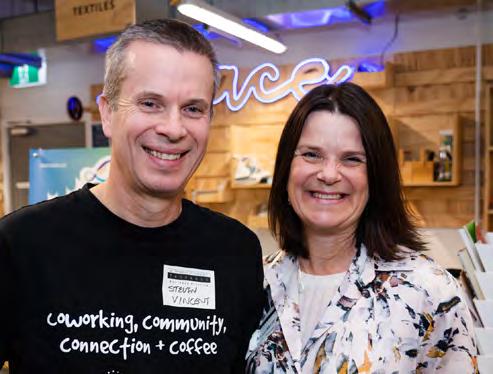
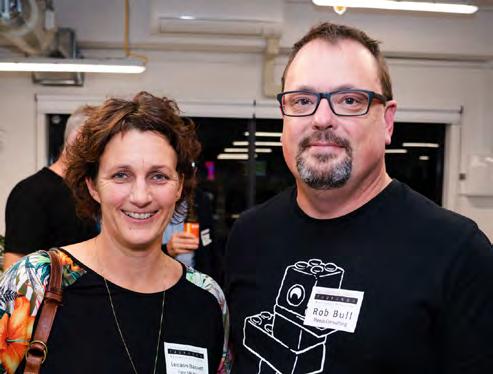
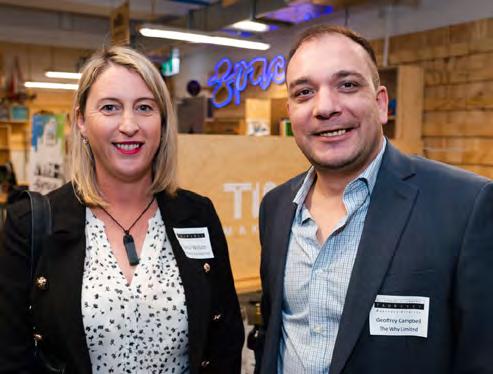
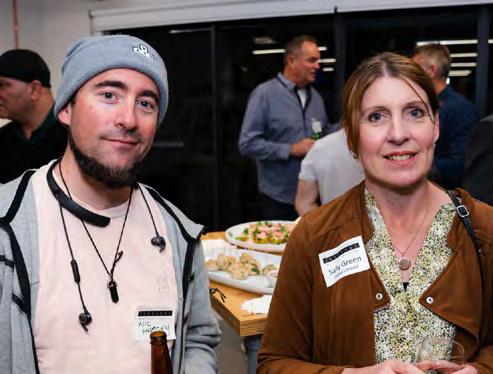
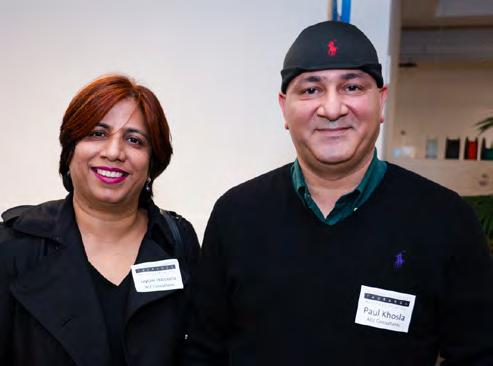
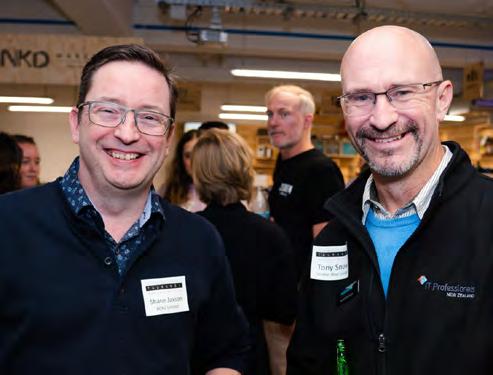
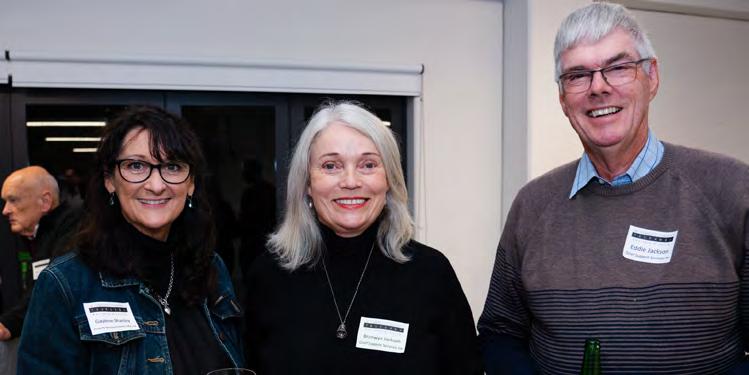
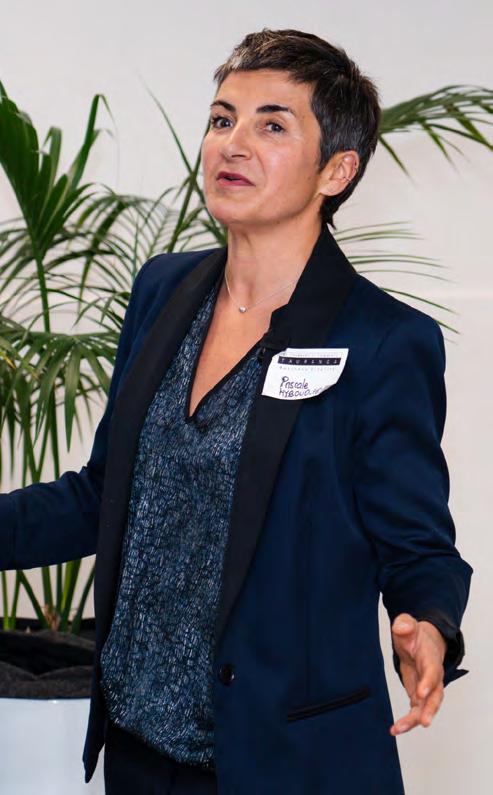
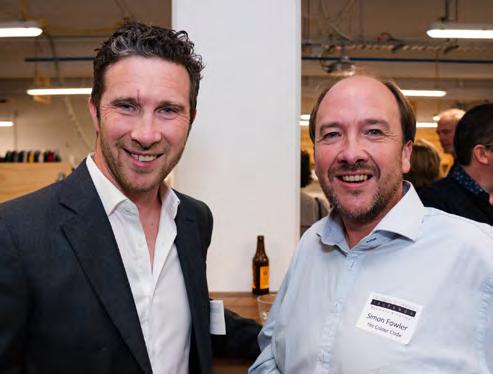

Leading New Zealand fresh produce software provider Radfords, which has its base in Tauranga, has overcome some initial global pandemic-related challenges to realign how it engages with global fresh produce businesses. These are showing a renewed enthusiasm to adopt automated pre and post-harvest technologies.
Customer success manager
Royce Sharplin said a considerable upswing in the demand for Radfords’ technology solutions in the past nine months had resulted in significant new business wins in Australia and the United States. This followed some challenging times after some sizeable projects were delayed by the uncertainty created by the pandemic and the lockdown conditions.
He cited several drivers prompting the surge of interest from various operators along the fresh produce supply chain, including some from surprising new sectors.
“There’s no doubt, the motivation for change has been exacerbated by coronavirus which has magnified operational inefficiencies for packhouse operators,” Sharplin said.
Struggle for seasonal labour
“Globally, fresh produce suppliers are struggling to find seasonal labour and they have found it harder to get physical labour into the packhouse and move people around due to physical distancing protocols.
“This frustration has forced a scrutiny of systems and a rethink of current system capabilities. Radfords’
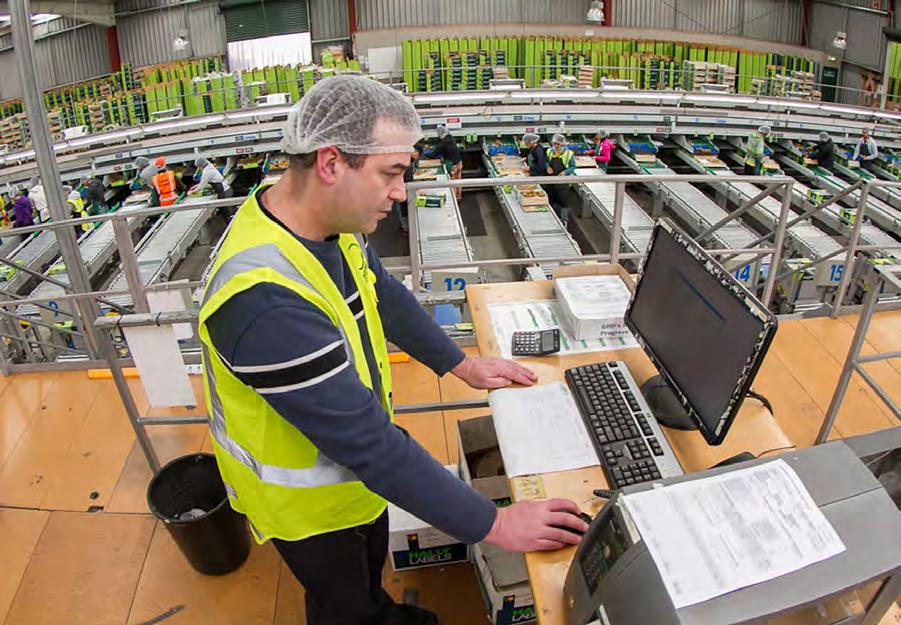
FreshPack software is customisable and scaleable to support fresh produce business growth.”
Sharplin said Radfords had continued to strengthen its existing product line-up and industry-specific solutions that facilitated the electronic capture, processing, storage and reporting of information in response to demand.
“The focus on tracking and tracing has never been greater. As global consumers demand healthy and safe produce, fresh produce suppliers need reliable and easy-to-use traceability technologies to support their efforts to meet this demand and assure their long-term survival.
“Radfords has a suite of products that provide full traceability along
Globally, fresh produce suppliers are struggling to find seasonal labour and they have found it harder to get physical labour into the packhouse and move people around due to physical distancing protocols. This frustration has forced a scrutiny of systems and a rethink of current system capabilities.” – Royce Sharplin
the supply chain, eliminating the need for paper-based or manual input systems.”
Pandemic-related travel constraints had made new deployments challenging, he said.
“But we’re adapting and utilising technology. For example, we’re working on the introduction of smart glasses which will give us a virtual tour of a packhouse to assess needs.”
New generation pushes for change
He said a new tech-savvy generation working in family owned fresh produce businesses, was also agitating for change.
“Second or third generation producers are approaching us directly as a result of not being able to travel or work offshore. They have grown up with technology and are looking with fresh eyes at ways to optimise sys-
tems and processes and add value to the family business,” he said.
Radfords had also experienced increased interest from operators who had outgrown their bespoke systems and urgently needed new systems to grow with them, he said.
Radfords was currently in the scoping phase with a major Australian root vegetable producer and several apple and citrus producers in the United States, he said.
“As there has been an inability to attend trade shows and meet producers face-to-face, we’ve noticed these conversations are starting at a more advanced point. Operators are doing their homework and speaking to likeminded businesses which already have Radfords’ technology.
“We are, however, very excited about hosting new and existing customers at our Hort Connections booth in Brisbane.”
Radfords has extensive experience in New Zealand’s kiwifruit and apple industries, having provided software solutions for packhouse operators since 1989. However, it now has more than 80 clients around the world including Australia, the US, Italy, France, Korea and Japan.
He said Radfords had sharpened its focus on the UX (user experience) of its core existing products during the past year, including the following products to give fresh produce customers a platform for efficiency and growth.
• On-farm FreshGrow
• FreshQuality
• Packhouse solution, FreshPack Business intelligence platform FreshInsights
• Radfords’ cloud-based capability Radfords’ pandemic-inspired prosperity had generated jobs for an additional six employees at its Tauranga base, including two interns in collaboration with the University of Waikato, he said.
“We’ve also had to contract resources in Australia to support and absorb the extra work and will look to have more feet on the ground in the US this year,” he said.
Norske Skog’s recent announcement that it would be selling the Tasman Mill’s assets and stopping production by the end of the month didn’t come as a surprise to the workers at the mill, or even most of the people around Kawerau, a town in the eastern Bay of Plenty with a population of about 7500.
The closure follows a strategic review that began at the mill last September 2020. Norske Skog regional president Eric Luck said the company would work with employees and their union representatives on the implementation plan for the closure of the mill, with the aim of making the process as smooth as possible.
However, the announcement that Norske Skog will close is devastating for the families involved and for the wider regional wood processing sector.
But the recent focus on diversifying the region’s economy away from reliance on forestry has been validated by the news, according to Toi EDA.
Toi EDA sees great opportunities to reposition the workers due to the surge in economic confidence in the region.
The Eastern BOP is one of the few regions in the country to have rebounded strongly to preCovid-19 employment levels and continues to grow based on several catalytic sectors that are receiving significant investments.
Demand for work is still strong
Ian Morton, Toi EDA co general manager, says that “with the community-minded Sequal Lumber Mill taking on an extra shift in Kawerau, the booming boat building sector recruiting heavily, record planting in the high value horticulture sector, and Whakatohea Mussels taking on almost 100 new roles, the demand for work ready employees is strong.
Three years ago we recognised the need to change our economy
to be more diverse and thankfully these opportunities exist today as a result.”
The construction of the Kawerau Putauaki Industrial Development, leveraging the clean geothermal energy found in the town, has already begun to attract investment in the town, such as the Waiu Dairy Factory.
The construction of the new roundabout to service the new industrial complex is well underway and the town is well set up to leverage the heavy industrial engineering expertise located in Kawerau.
Mill workers wanting to start their own businesses are encouraged to tap into support resources that the EBOP Chamber of Commerce has on offer, with a business advisory role that regularly visits Kawerau.
The local industry community group, Industrial Symbiosis Kawerau, will continue to support those businesses that work alongside the Norske Mill to ensure they are able to identify new opportunities.
Toi EDA co general manager, Karl Gradon, encourages central government to align wood processing policy that will reduce the incentives for log owners to export logs offshore in their raw form and instead find ways to add value locally.
The distortion in the world lumber market is extreme and, alongside our high energy costs, is causing the closure of our domestic processing capacity.
If these distortions continues then the domestic wood processing sector will continue to be challenged and further closures will be on the horizon.
Anyone who has had a disagreement with their partner will know the danger of getting your tone wrong. The same is true in marketing; get your tone of voice wrong and you risk failing to connect with potential customers or turning them off your product or brand completely.
But how do you pick the right voice? One of the first things to consider is the demographic you are marketing to. How old are your target customers? Are they male or female? Is your business operating primarily in the business to business or business to consumer space?
Think about the way your ideal customers like to be spoken to, including what will grab and hold their attention, as well as what they are likely to find credible.
Be aware of differences in tone
Take the example of business selling the latest skate clothing to teenagers and school-leavers.
The conversational and edgy tone that might be most effective to market to their audience is likely to be vastly different to the language used by an established technology company selling enterprise-level accounting software to corporates.
Your brand – and the way you want people to perceive your products and service – is another key consideration.
If you operate at the luxury
end of the market, your language should reflect that. You might emphasise the quality of your product or service, the story behind how it was created, and the superlative experience people will have when using it.
This differs from the way you might market a product or service that is competing purely on price. Think of Pak ‘n’ Save and its stick man ads; words like “cheap” need not be avoided if you are competing at the lower end of the market. Understanding your target customers, your brand, and your position within your market will help guide the language you use, as well as the tone and messaging that will be most effective.
Keep in mind that in all cases, plain English should still be used. There’s no need to pack your content full of acronyms, cliches or buzzwords, even in the most corporate of markets.
It’s also important to ensure you’re up with the play with the language used by your target demographic. People will quickly notice if your language is out of touch.
I recall the sales manager of a company I worked for years


> BY JAMES HEFFIELD

Director of Bay of Plenty marketing and PR consultancy Last Word. To find out more visit lastwordmedia.co.nz or email james@lastwordmedia.co.nz.
ago who asked me to develop advert copy to promote a series of youth programmes that were being run in Auckland.
He was determined to sprinkle terms like “sick”, “skux” and “the bomb” throughout his ad messaging, forgetting the lingo used by young people changes quickly and had moved on since his own children were in school.
I’m sad to say my objections to including the terms were ignored, the ads were run, and they became the butt of a fair few jokes amongst their target audience.
Change your language if necessary
Changing the language you use to promote your product or
service can require a chameleon-like ability to adapt the way you speak or write. However, it can pay real dividends when it comes to sales and the number of people engaging with your company.
Many digital advertising platforms – including Google Ads and Facebook – allow you to run A/B testing of different wording to accompany paid
ads you are running. This process allows you to present two variations of an ad to different members of your target audience while gauging which of the variations attracts the most clicks and drives the most online sales. Using A/B testing to gauge the effectiveness of ads with subtly different language is just one way businesses can home in on the tone that resonates best with their audience. Getting your tone right is a constant learning process, and one that needs regular revision. What’s important is that you remain in tune with your target customers, continue to speak their language, and respond as your market position and brand continue to evolve.


> BY ALAN NEBEN
Alan Neben is a Mount Maunganui local and experienced New Zealand publisher. He uses digital devices well in excess of the recommended daily limit. alan@bopbusinessnews.co.nz
he original mobile telephone weighed in at impressive 2kg and was first demonstrated in 1979. The first commercially available handheld, the DynaTAC 8000x was not available until 1983. The four-year gap seems somewhat pedestrian given the speed to market of modern tech products. I guess that gave them time to ‘get it right’ and ‘sort out the bugs’, rather like the time you need to develop
and launch a Covid vaccine –but that’s another story. The 1990’s: what heady days they were. Brick in hand, shoulder pads in place and Bollinger flowing, business lunches will probably never end so late-in-the-day again. Funny thing is, you didn’t actually need to use the mobile phone, you just needed to be seen with it and to occasionally fake an extremely important incoming call. An elaborate song and dance evolved
around the façade of appearing to be a mobile-equipped VIP (Very Irritating Person).
But that first mobile phone let the genie out the bottle, and as we know, you can’t easily get the toothpaste back in that bottle [sic].
Must have had’s
We’ve often seen new-fangled gadgets become the ‘must have’ … and then quickly become the ‘must have had’.
Fax machines suddenly flourished in business in the ‘80s, then declined as quickly in the ‘90s replaced by email, computers and printers – oh how quickly we forget.
The now ubiquitous cell phone has not fallen victim to such a meteoric fall-fromgrace. On the contrary the mobile has evolved and morphed from a phone-calling device to a, “do-absolutely-everything-you-can-think-of, and-then-even-more-stuff, device”.
The names may have changed, Motorola and Blackberry have been supplanted by Apple and Samsung, but the song remains the same.
to get a millennial GenZ’er to phone their grandmother or clear their voice mail messages? What part of cell phone (if you take away the cell part) do they not understand? And ‘no, Gran doesn’t want you to DM her - She doesn’t do DM’.
Virtually everyone nowadays has a mobile device. We can Uber, Ola, Holla, Tweet, swipe, post, friend, defriend, txt, IG, FB, WhatsApp, like, unlike, slack, follow, unfollow, pay, Afterpay, Paypal, filter, stream, cast, share and then ghost – you can even have blue teeth and make videos with a clock in the clouds.
Why, oh why then, given the ubiquitousness of the mobile phone, is it impossible
The names may have changed, Motorola and Blackberry have been supplanted by Apple and Samsung, but the song remains the same. Hardly surprising that the biggest job confronting auditors for NASDAQ superstars like Apple is checking the correct number of zeros at the bottom of their reports – trust me, it’s so easy to absent-mindedly transpose a billion and a million. There’s money in mobile. And all the while the fax machine can still only send faxes. Sad.
Yet ironically, the one skill the smart phone seems to be eliminating is the ability to “just call”. And that’s leading to a related problem – the declining ability to “just answer”.

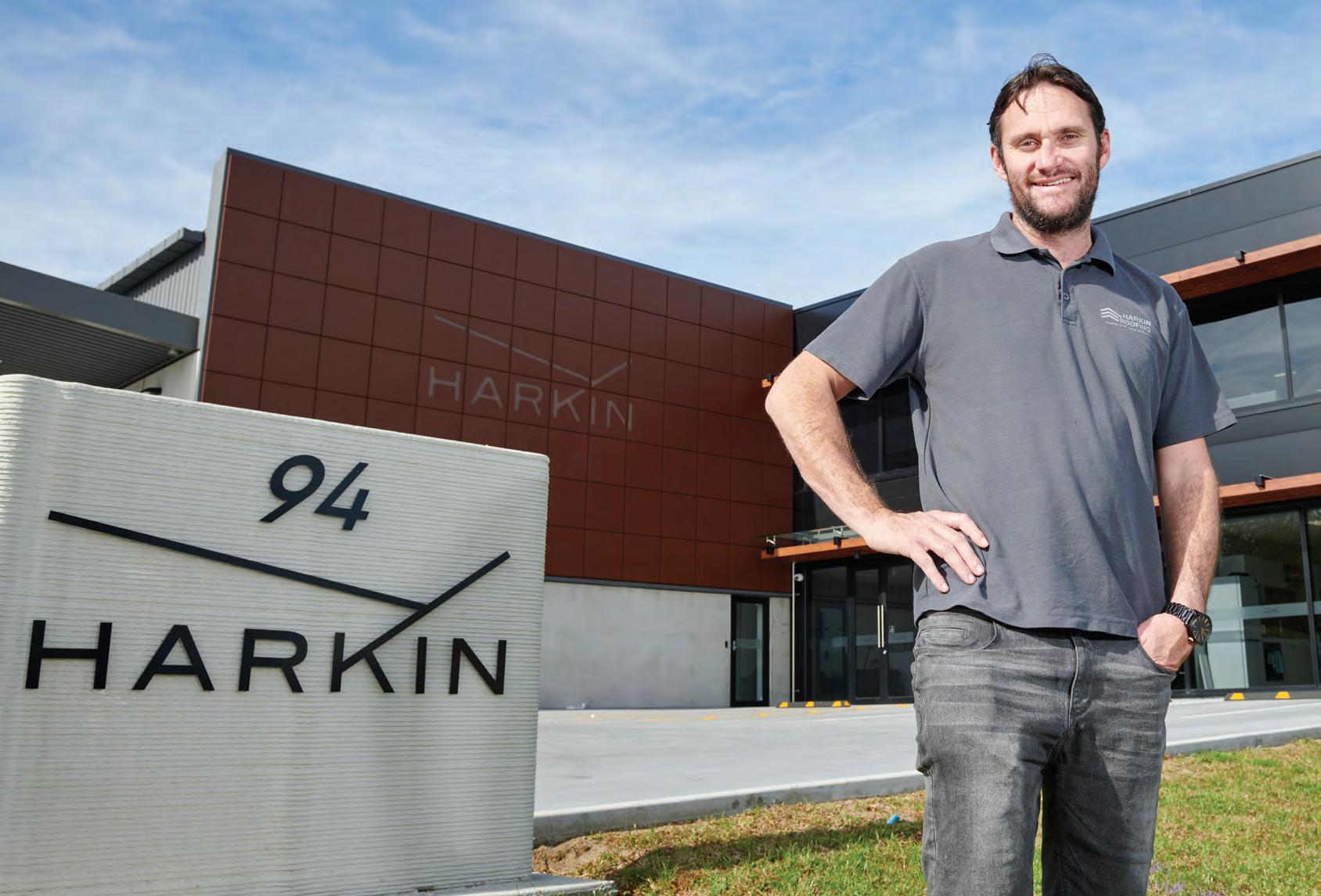
HARKIN ROOFING has a new purpose-built office and manufacturing facility at 94 Gargan Road, Tauriko.
Built by Foster Construction, Harkin’s new footprint is approximately 1,210m², comprising 400m² offices, a manufacturing space for flashings and edge-protection, plus plenty of storage space.
Director Brad Harkin says that, having worked as a roofing subcontractor on several of their projects, he had seen first-hand the quality of their work, Fosters was a natural choice.
“Fosters are easy to work with” says Brad. “They instil a great level of trust through the project team and with clients.
For Fosters, attention to detail was key to this project. The objective was to provide a well laid out facility suited to Harkin’s daily work, with an abundance of natural light.
“Starting with a simple concept design, Fosters were involved in designing a practical space that was fit for purpose” continues Brad.
“Throughout the project, nothing was too hard. I could pick up the phone, discuss a change and see it happen. There was no need to sign off every step.”
The result is everything Brad expected, and more.
“The project was delivered on budget and on time” he concludes. “I can’t fault the building at all. And the quality of finish, especially through the offices, really exceeded my expectations.”












